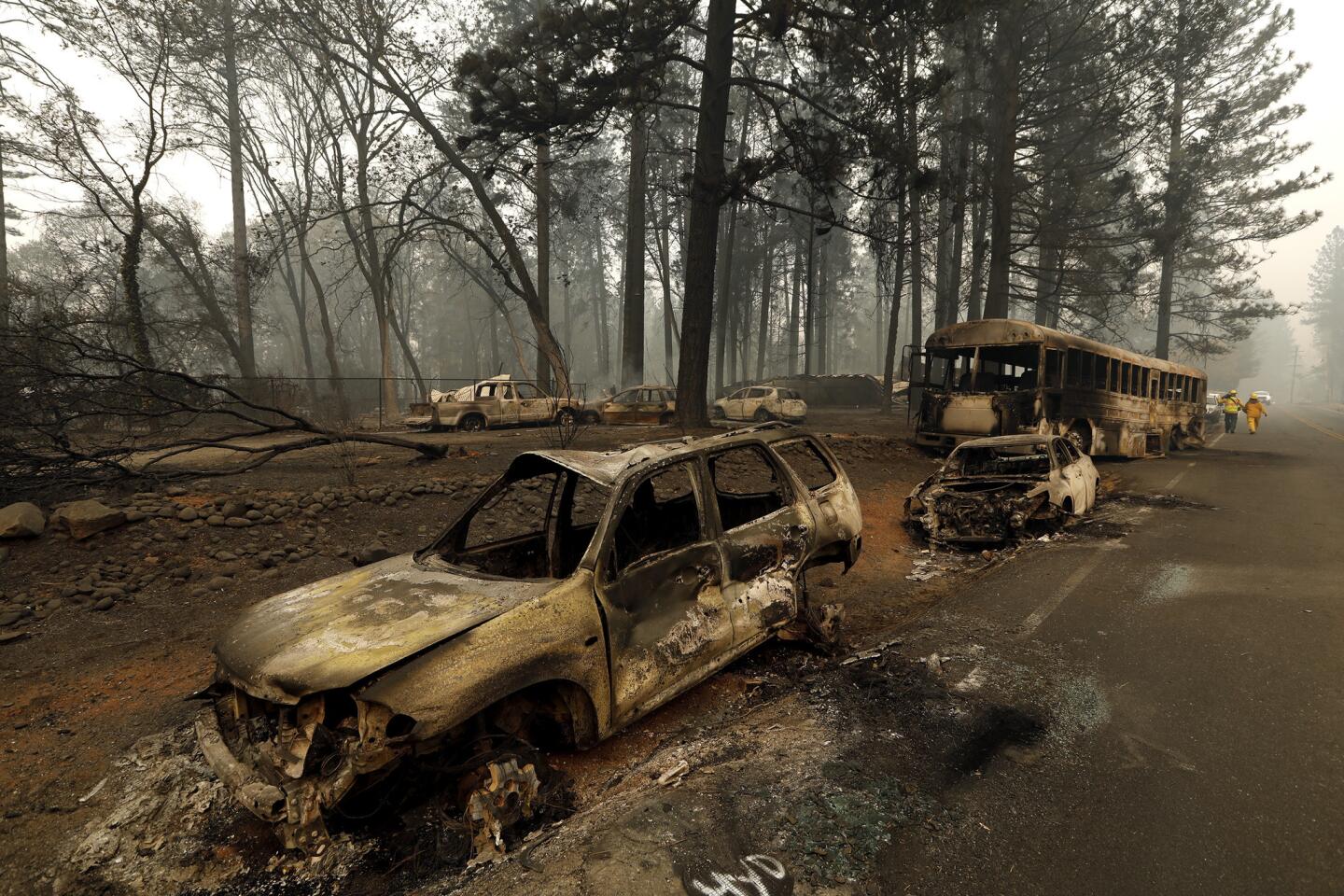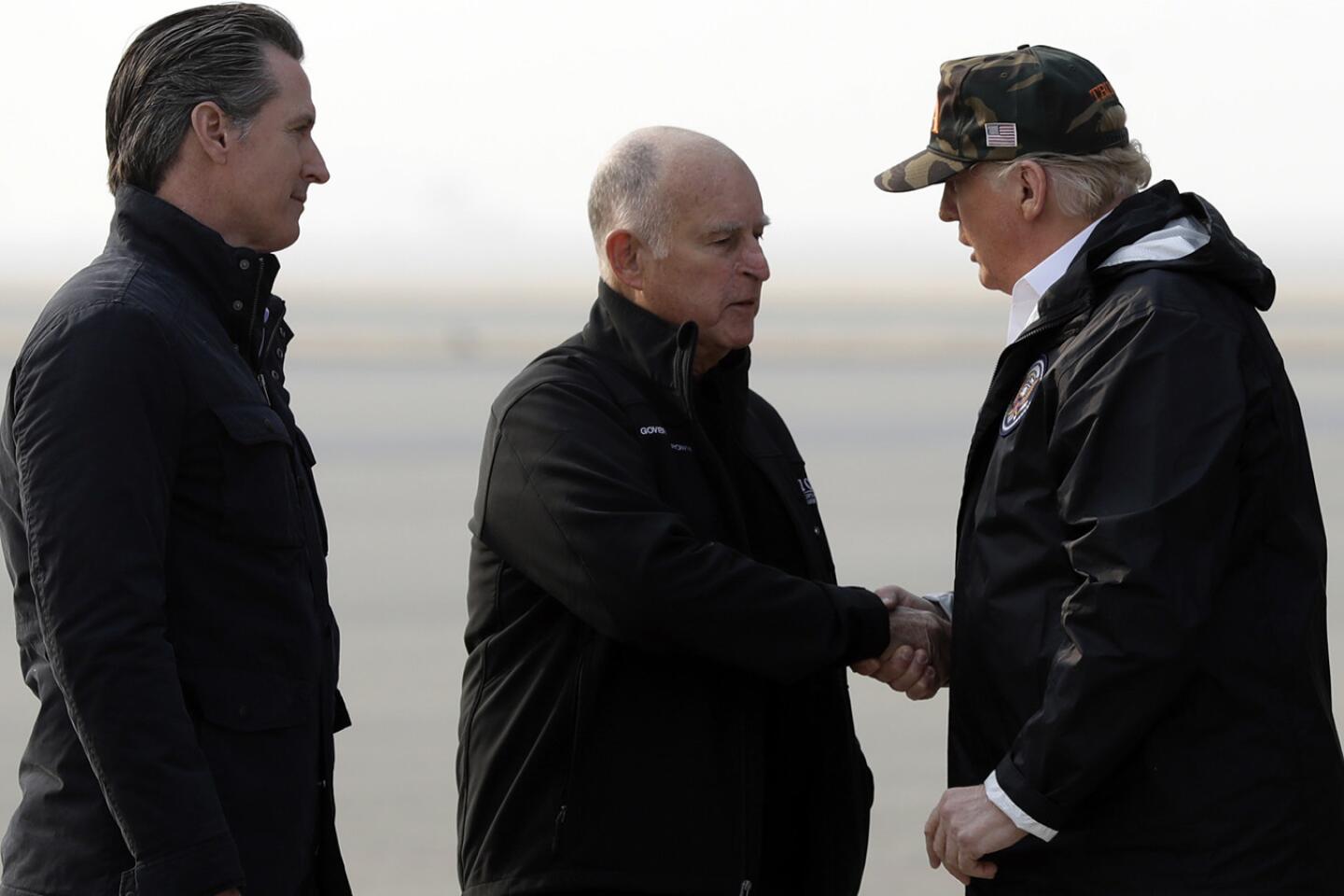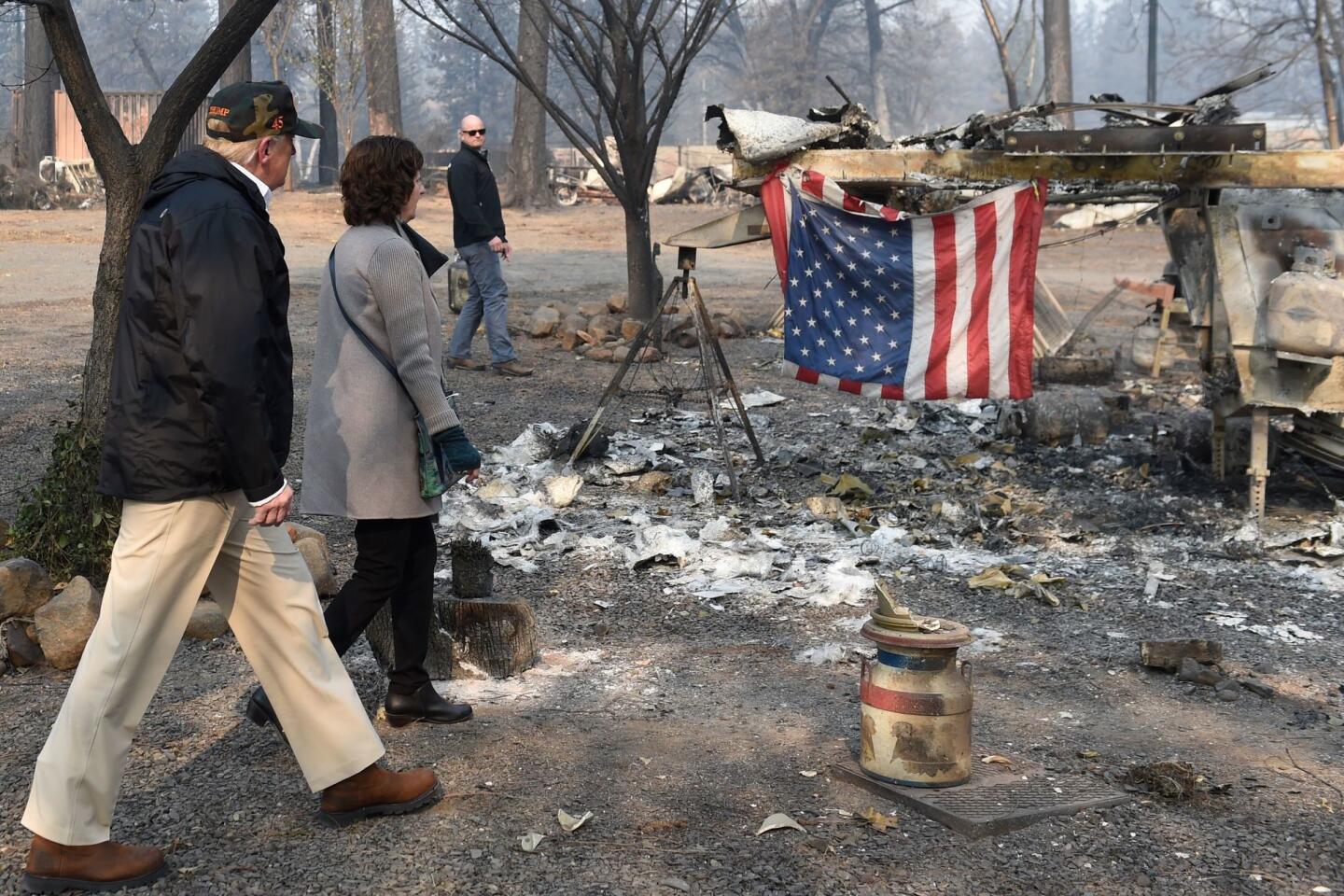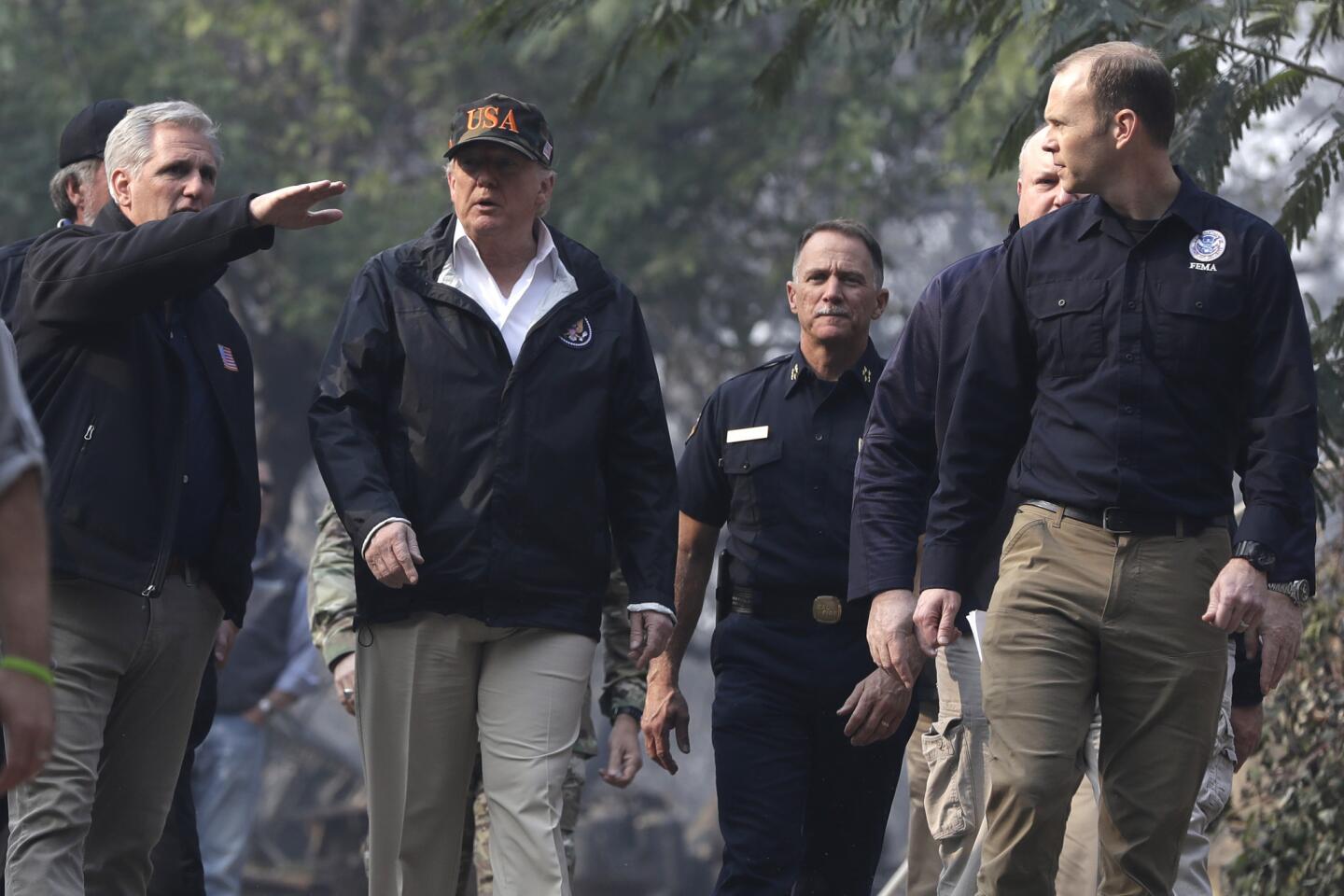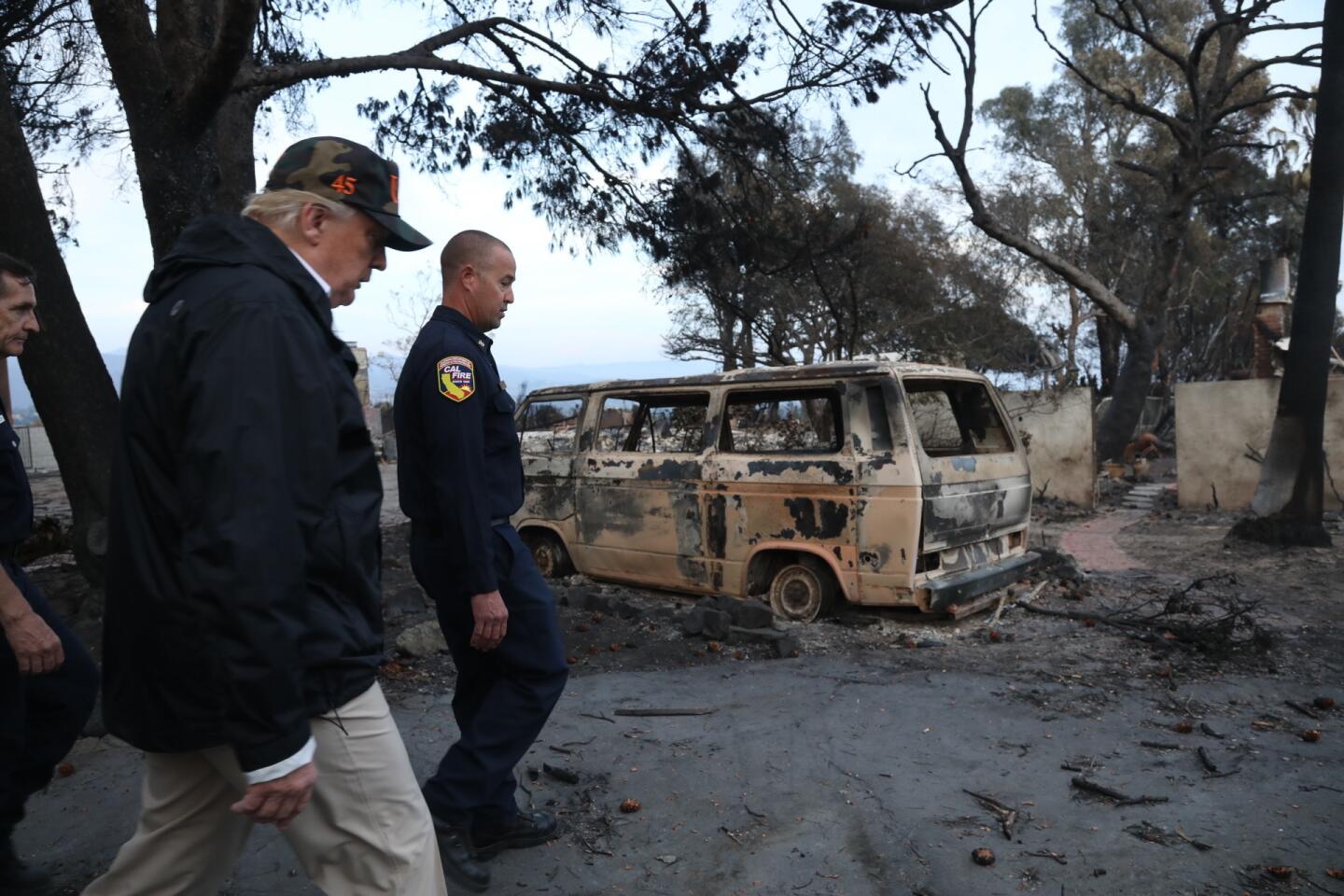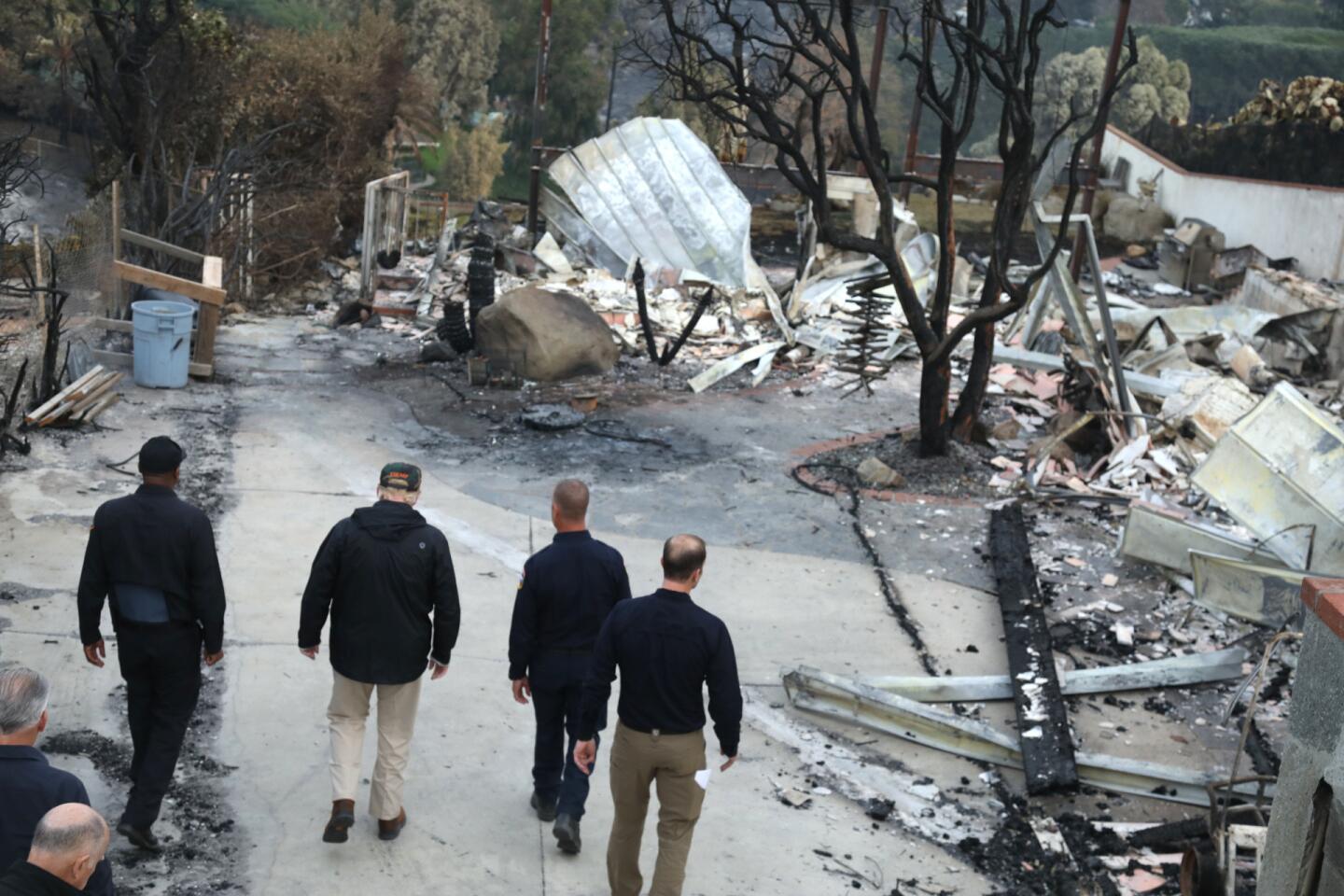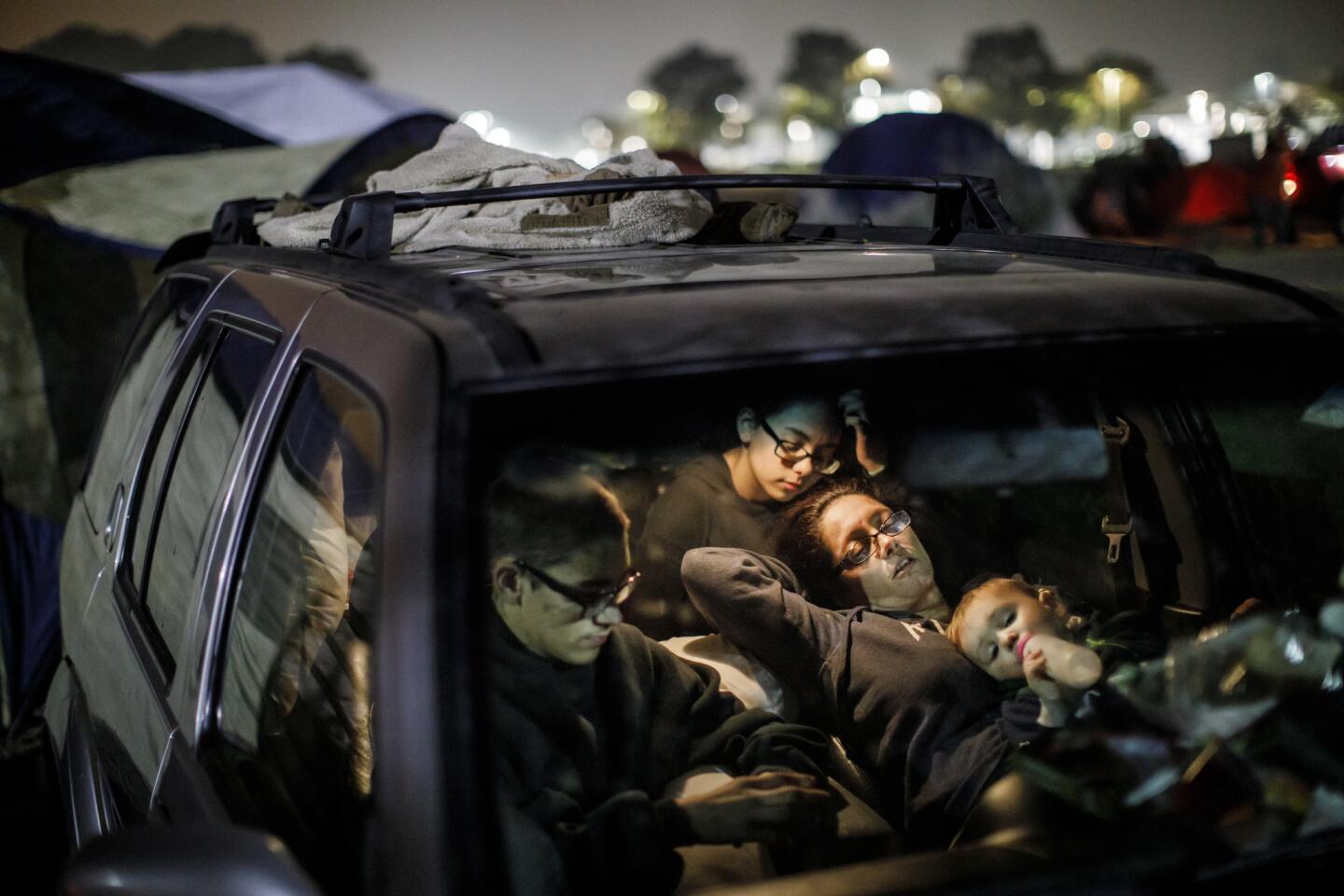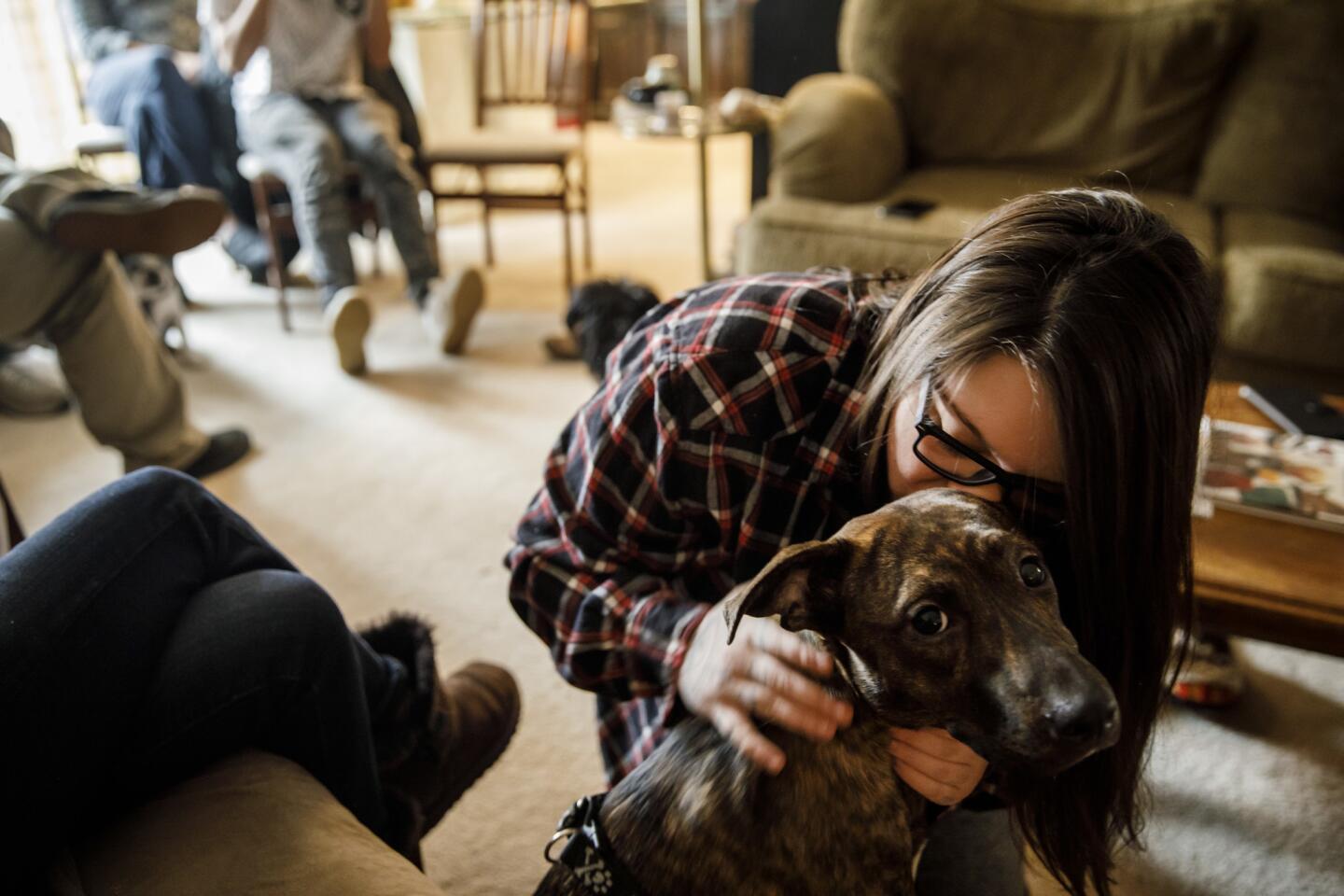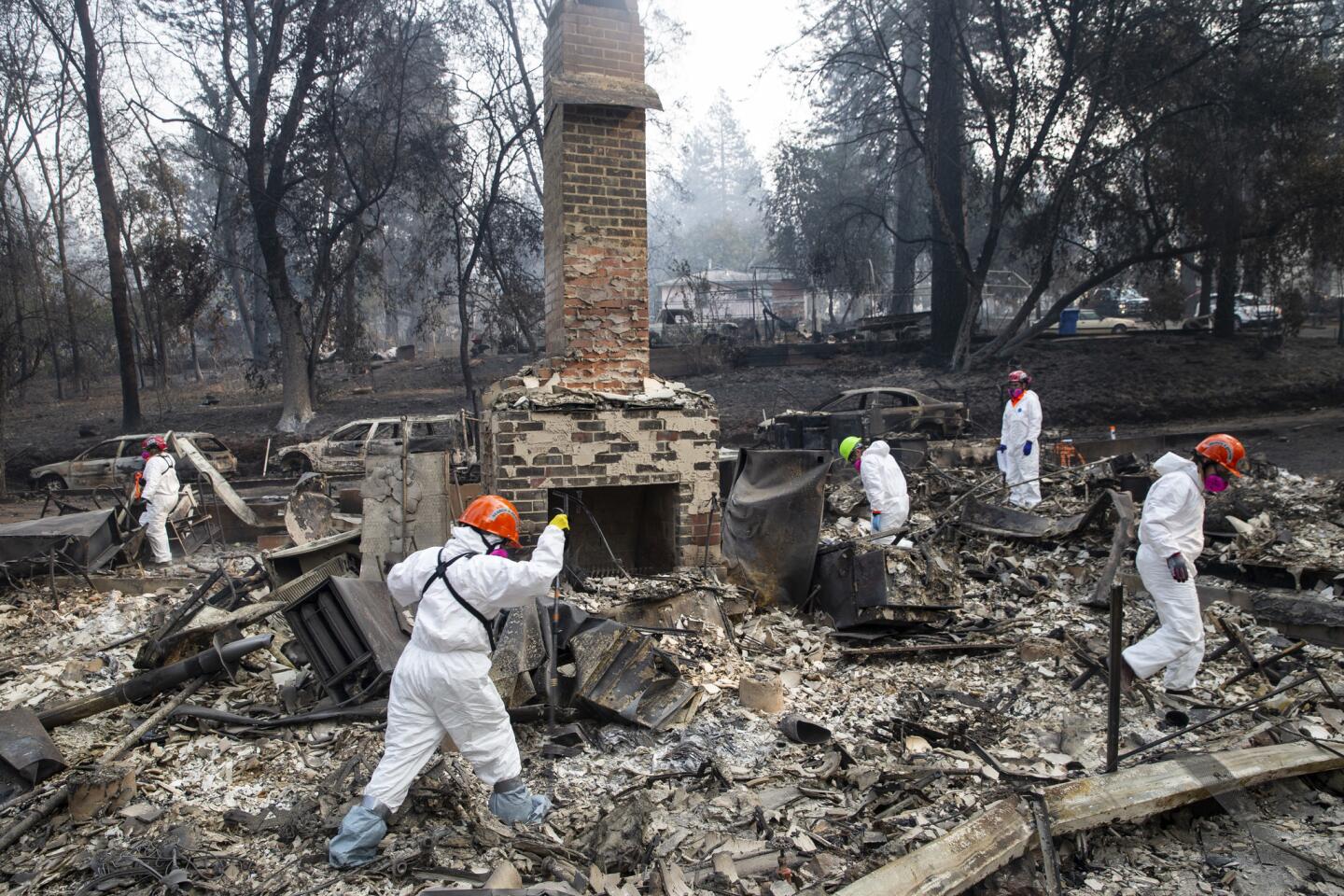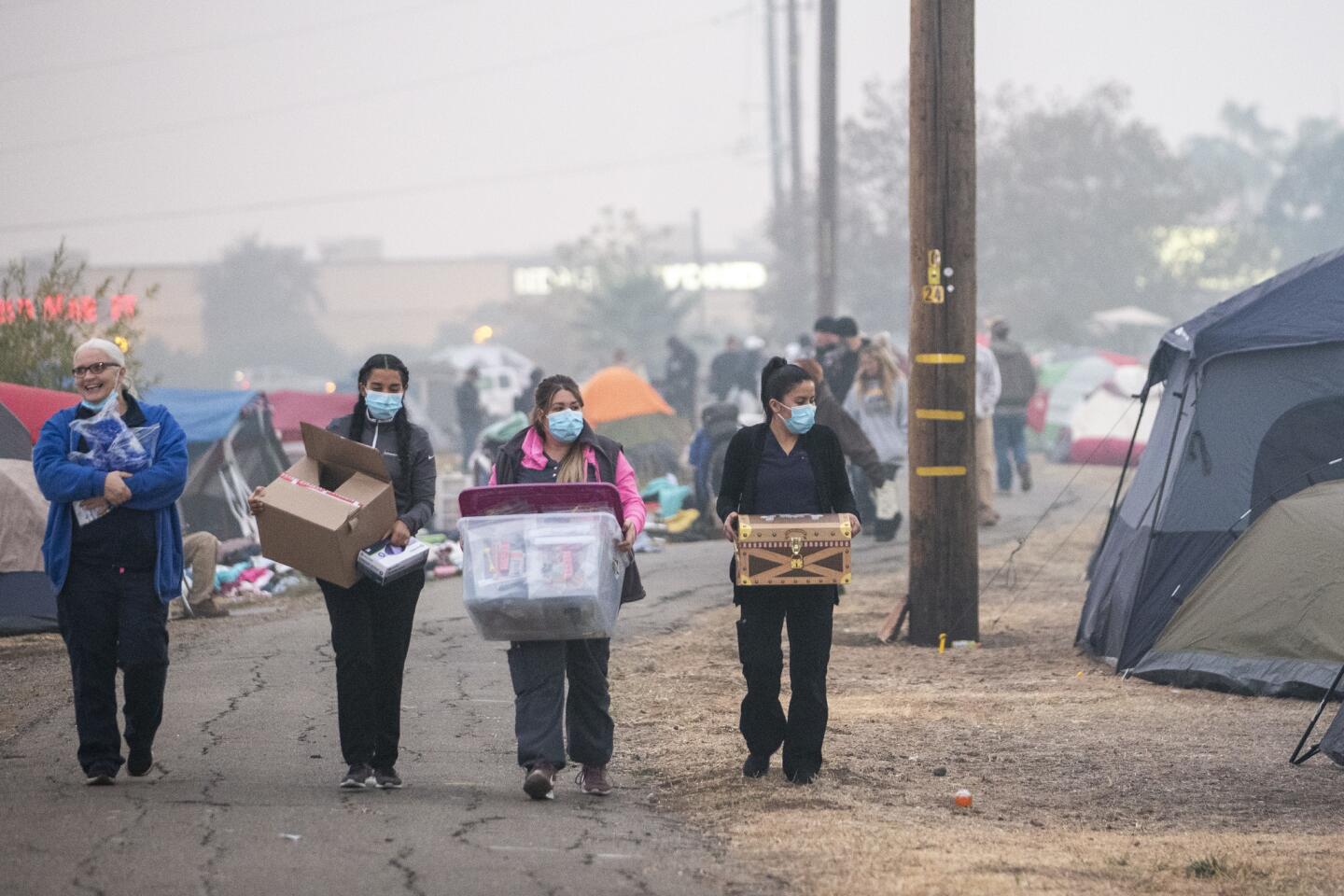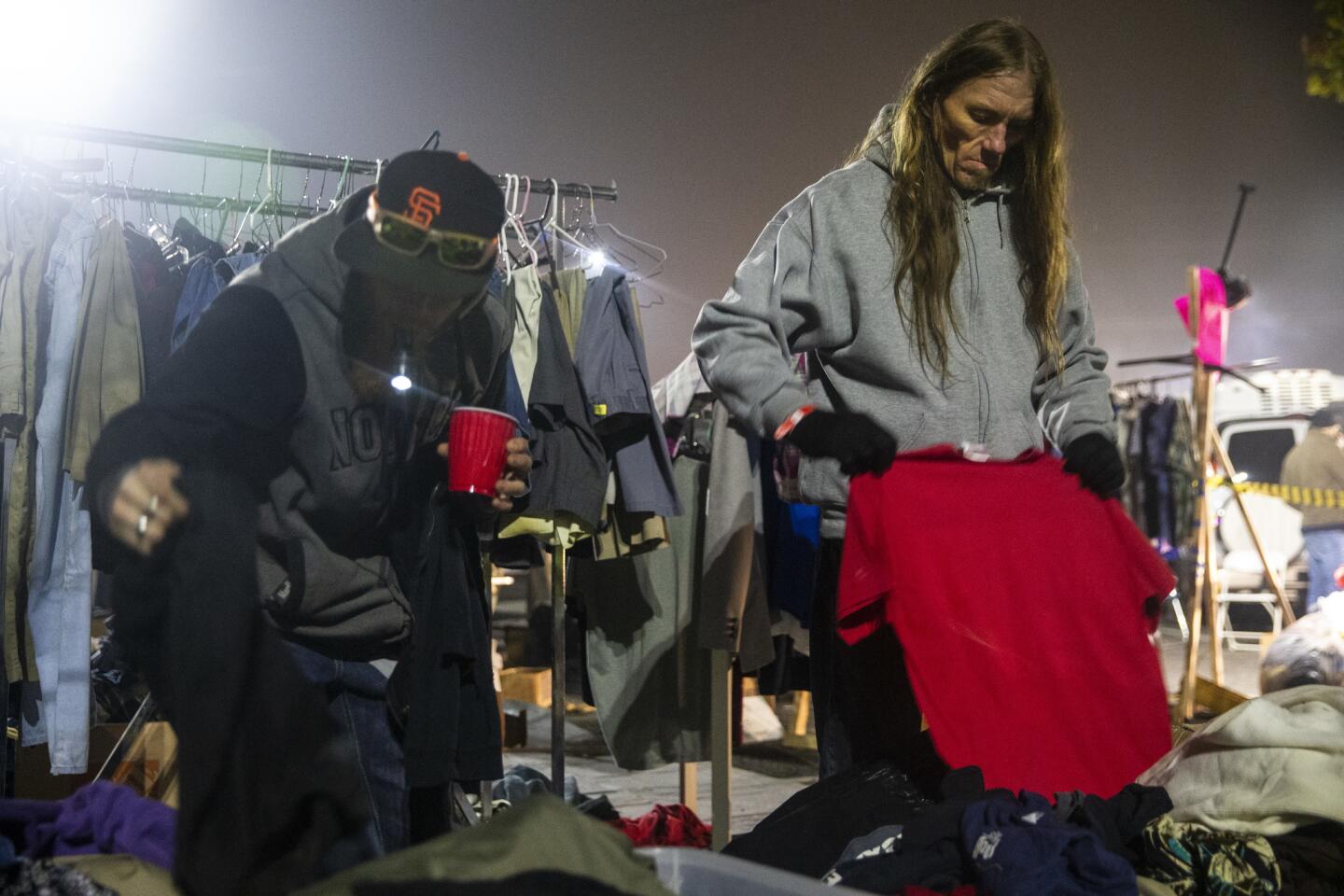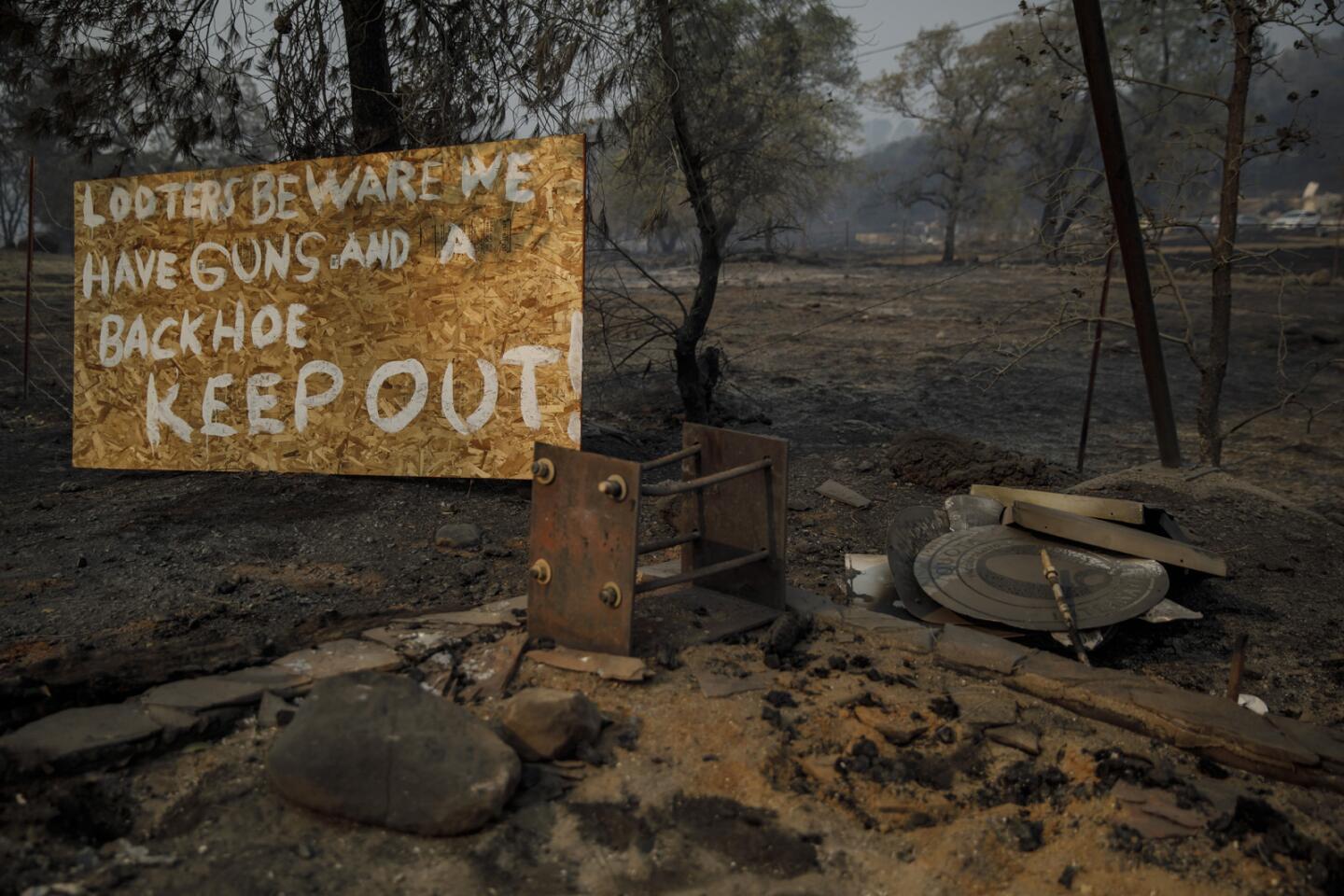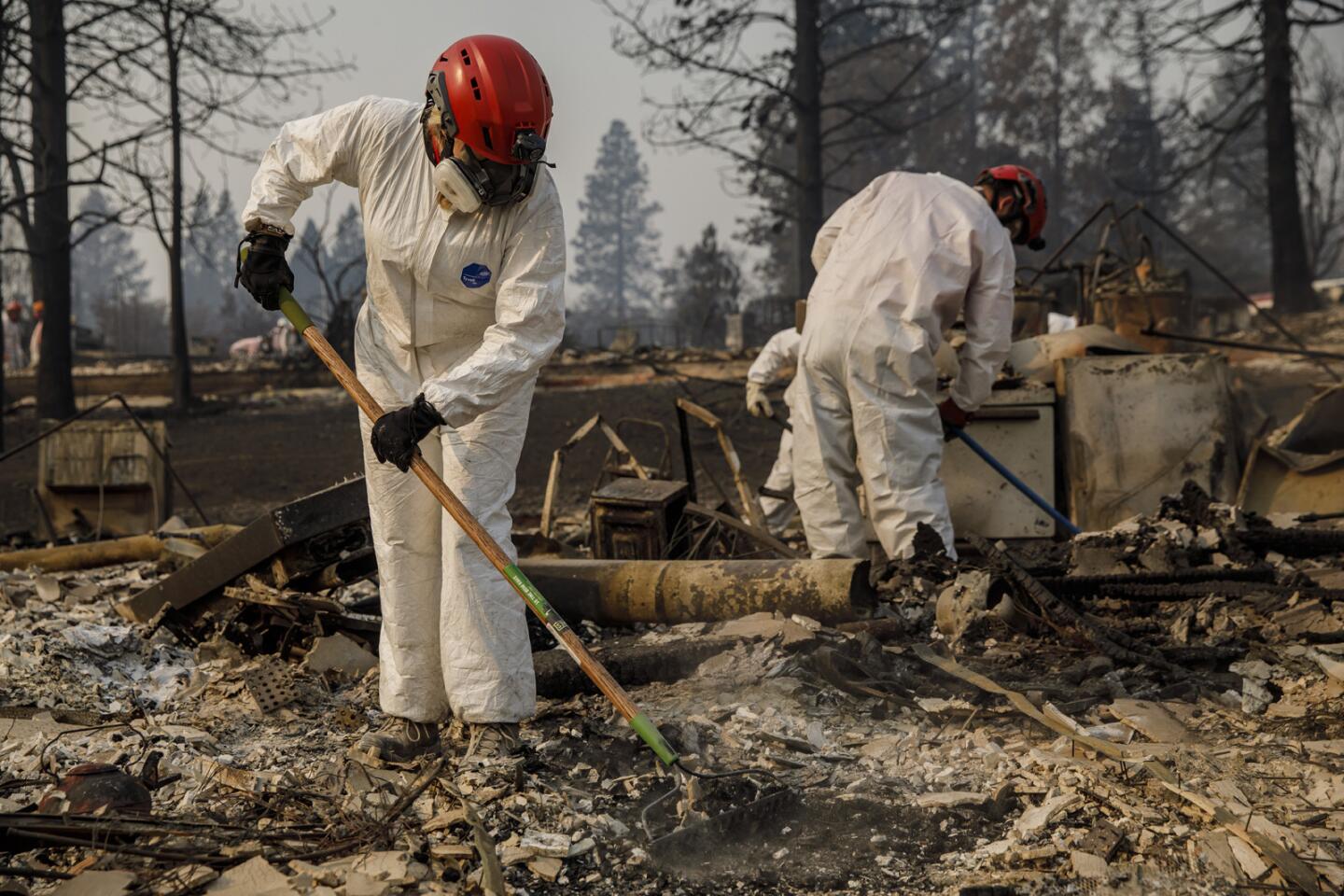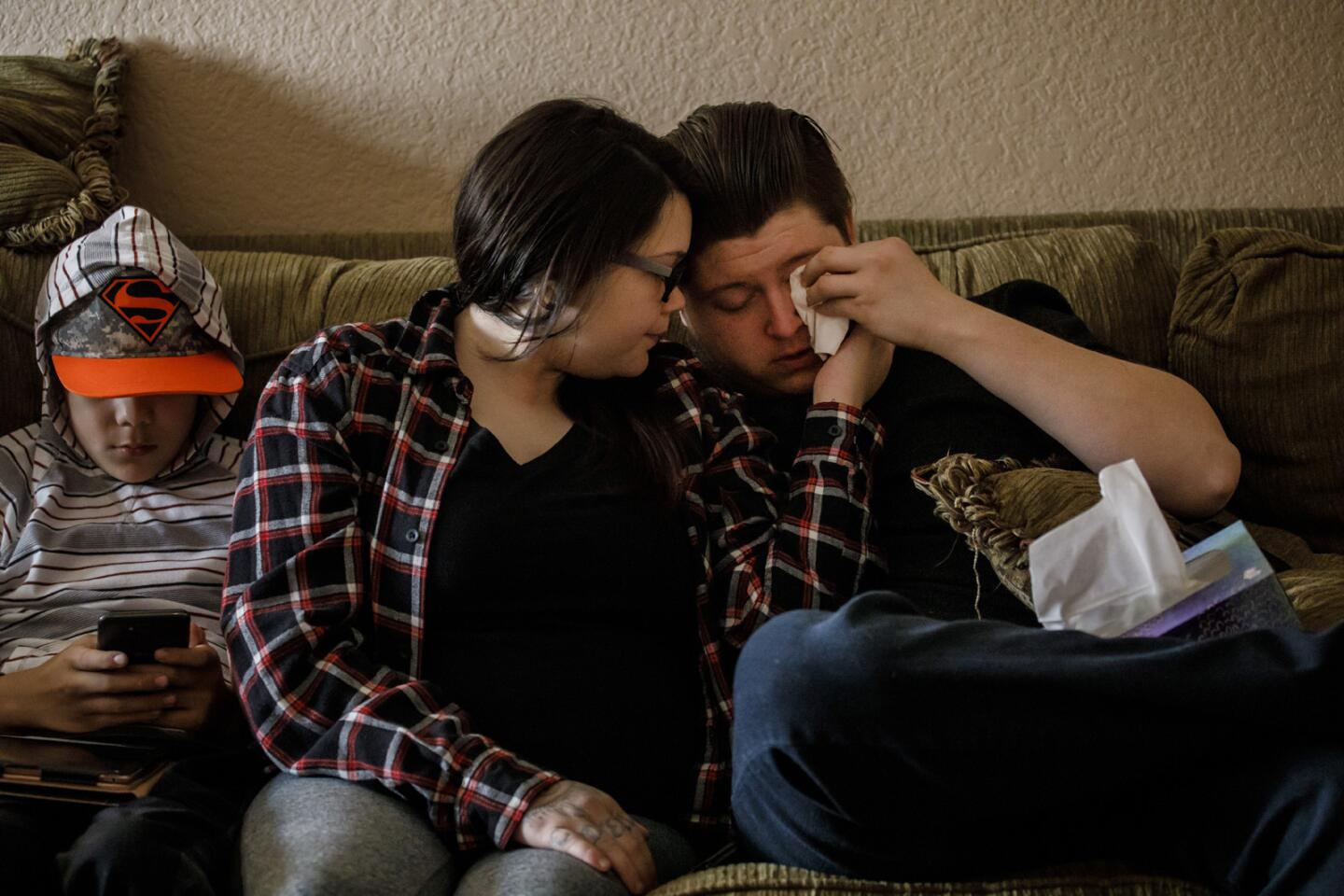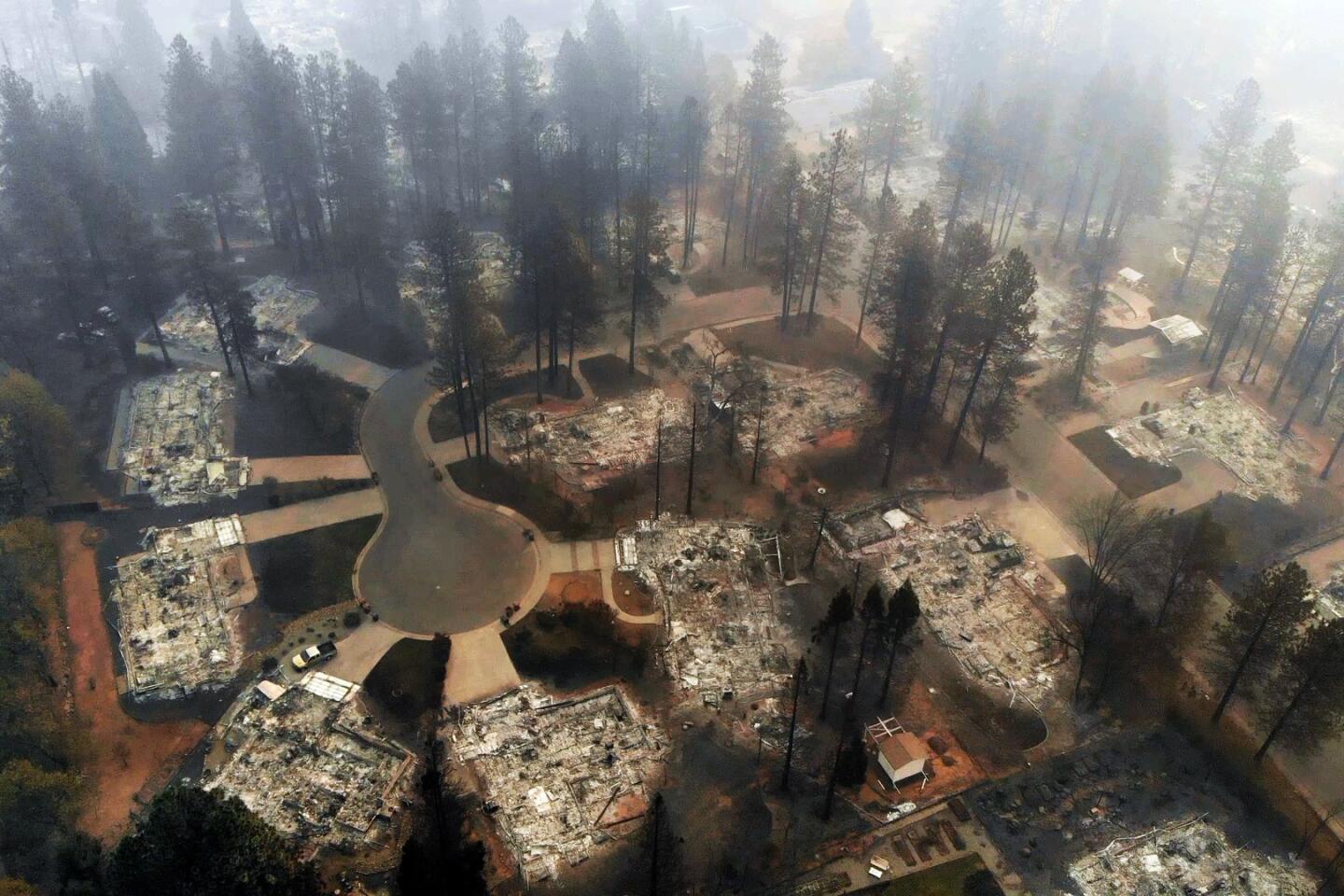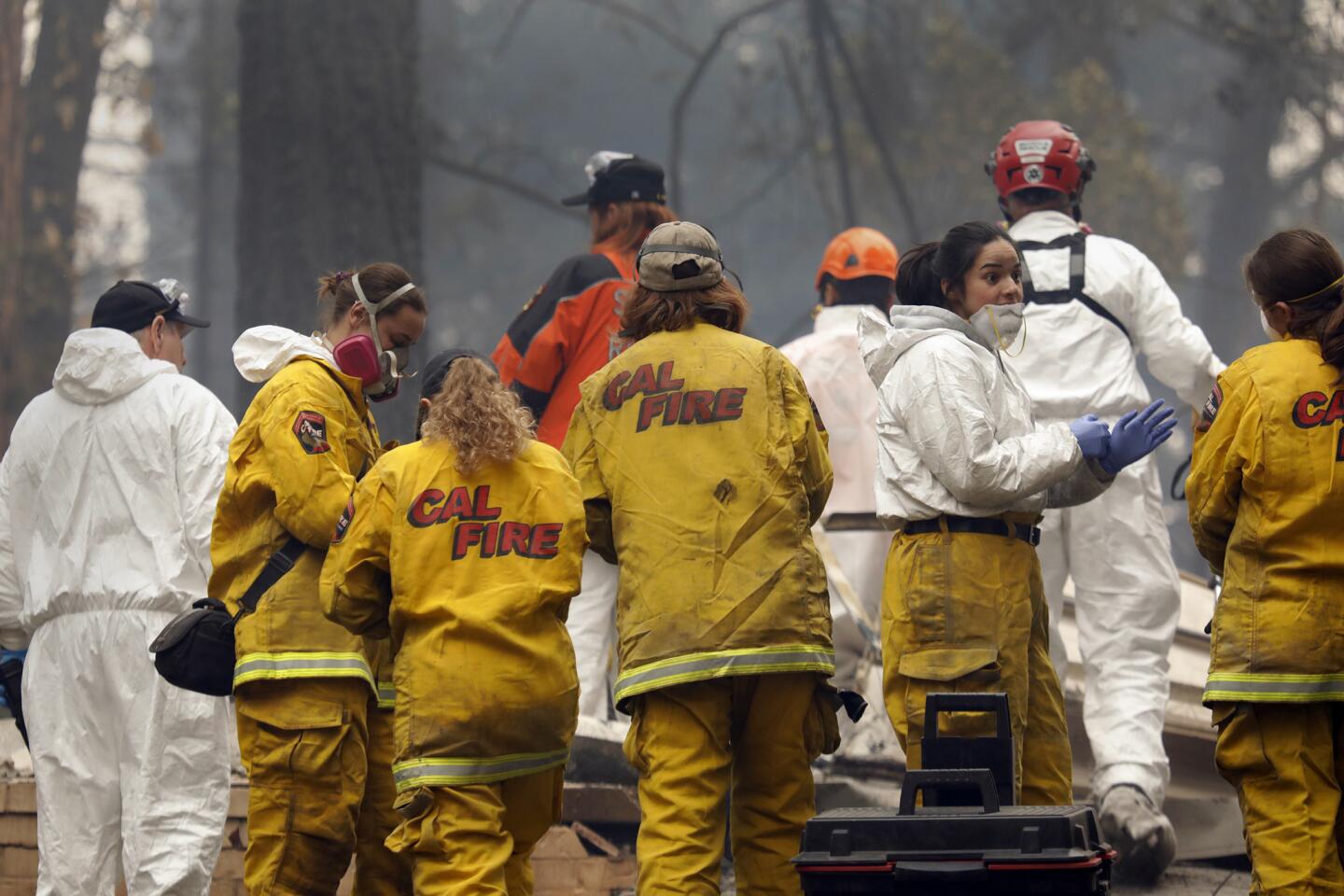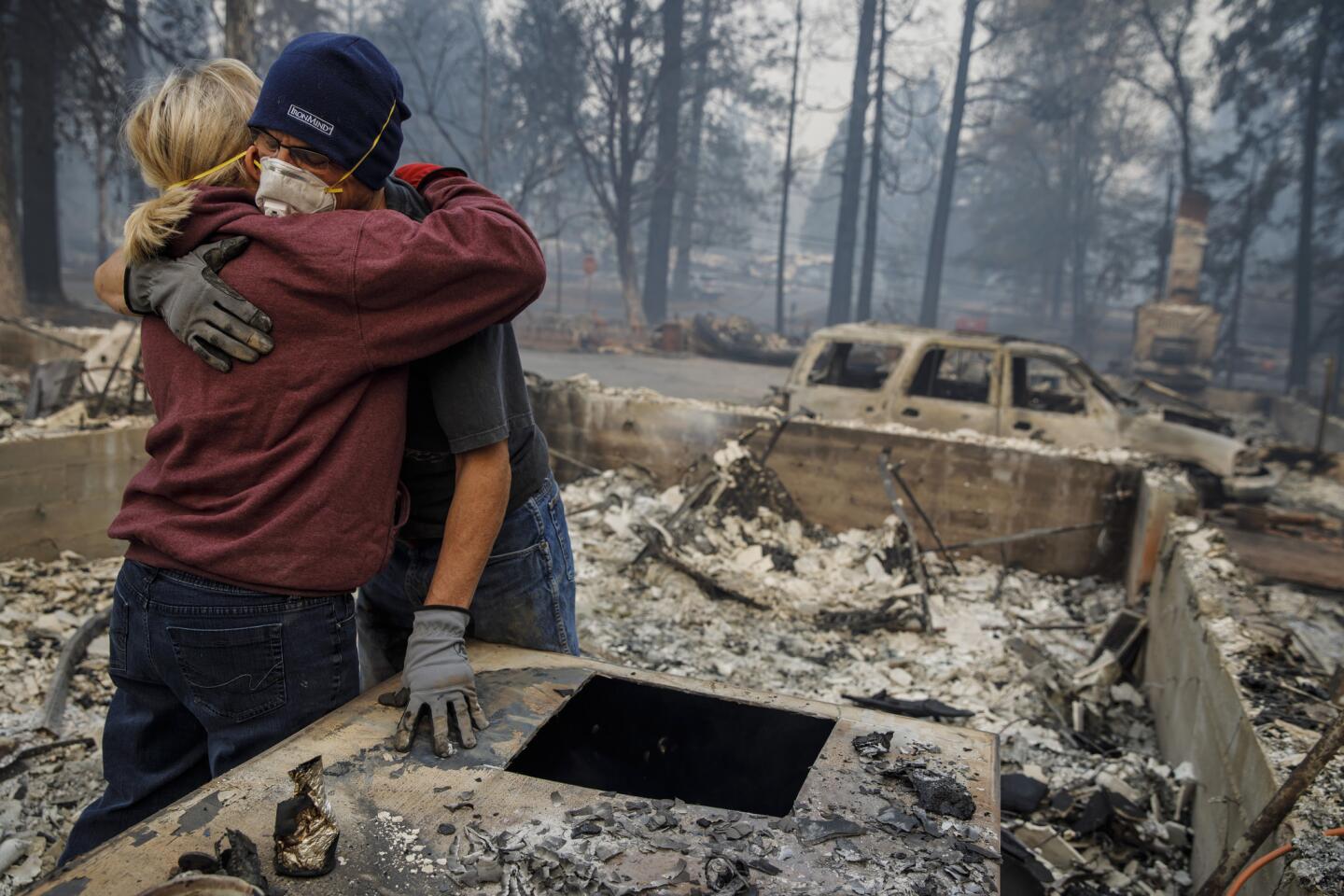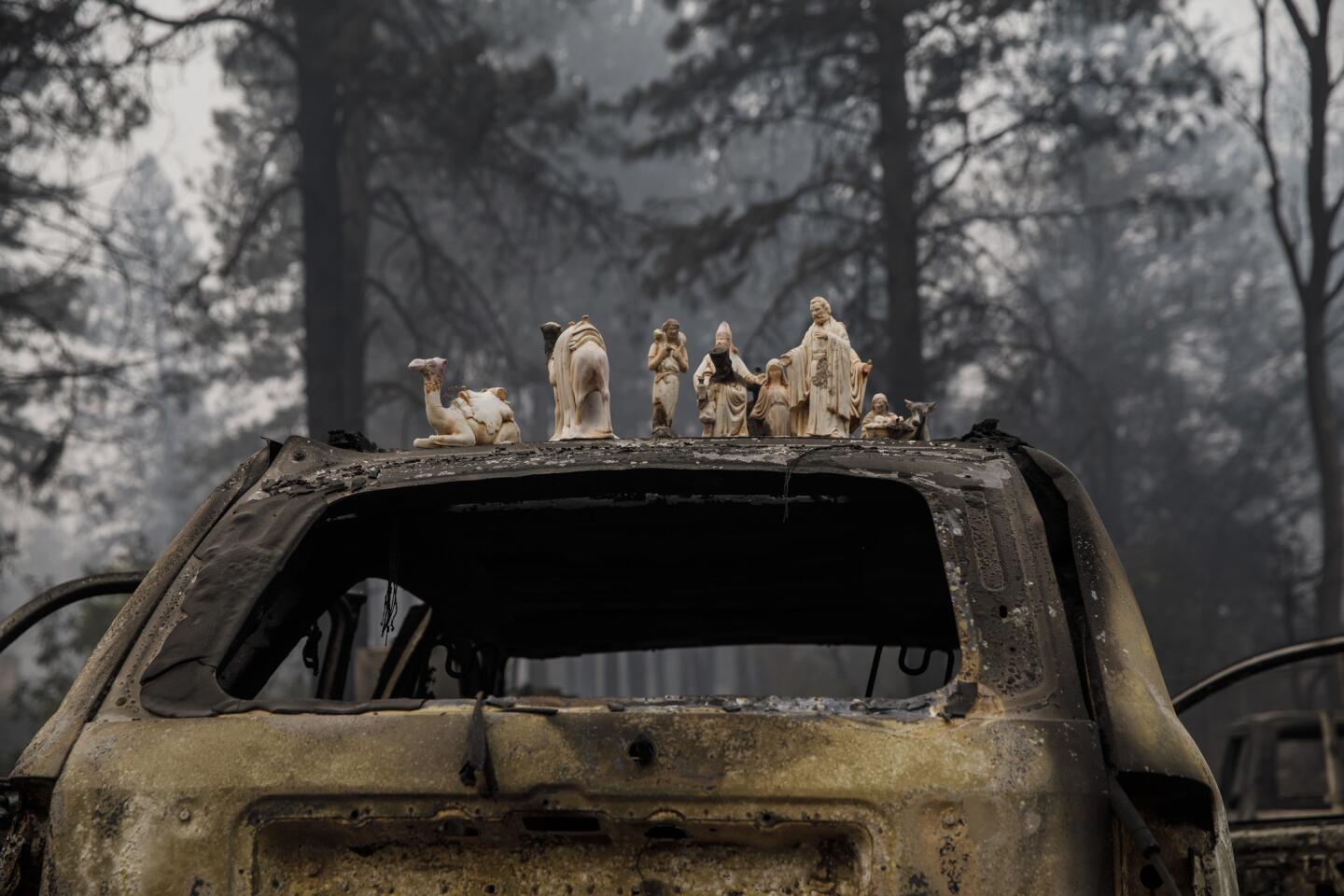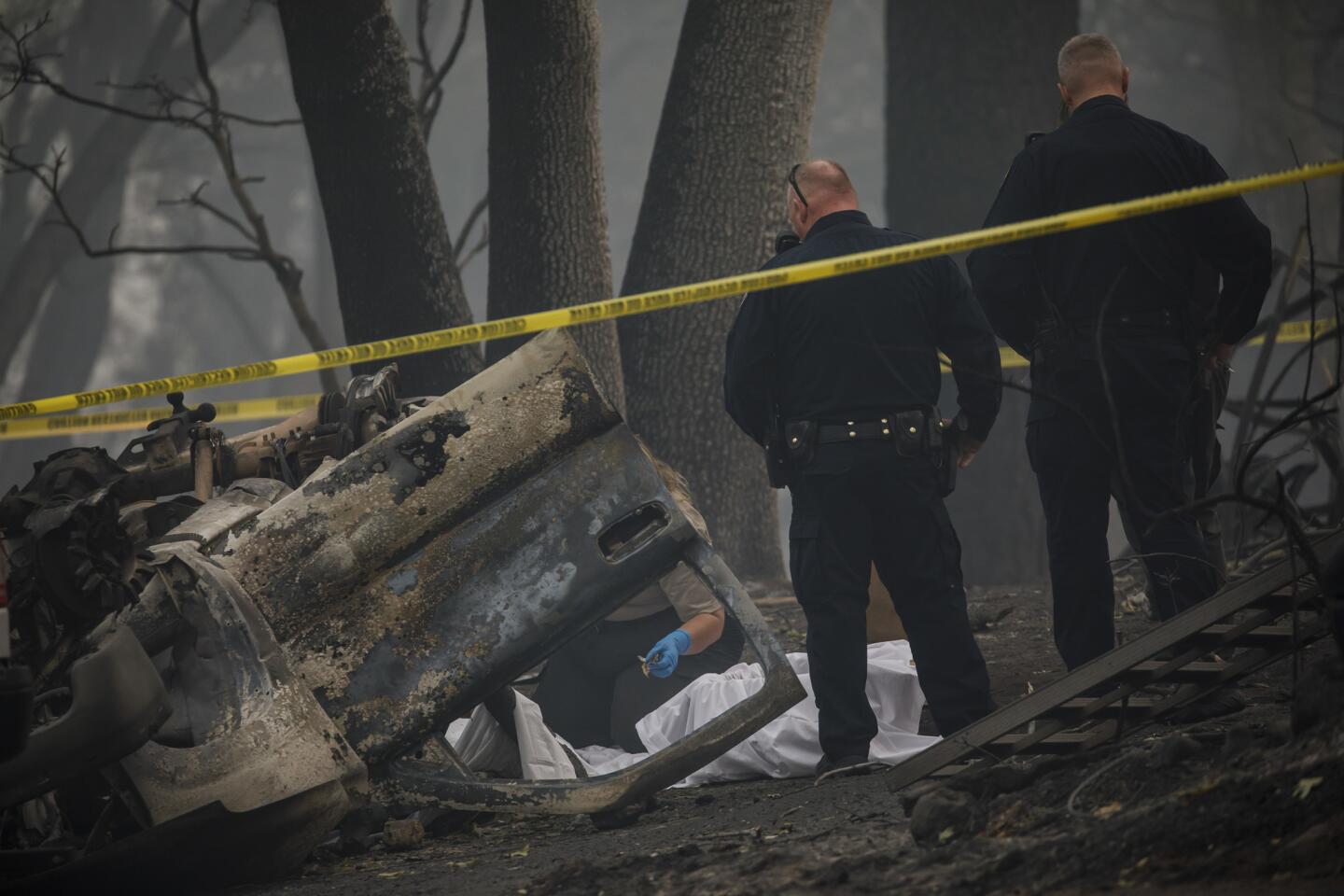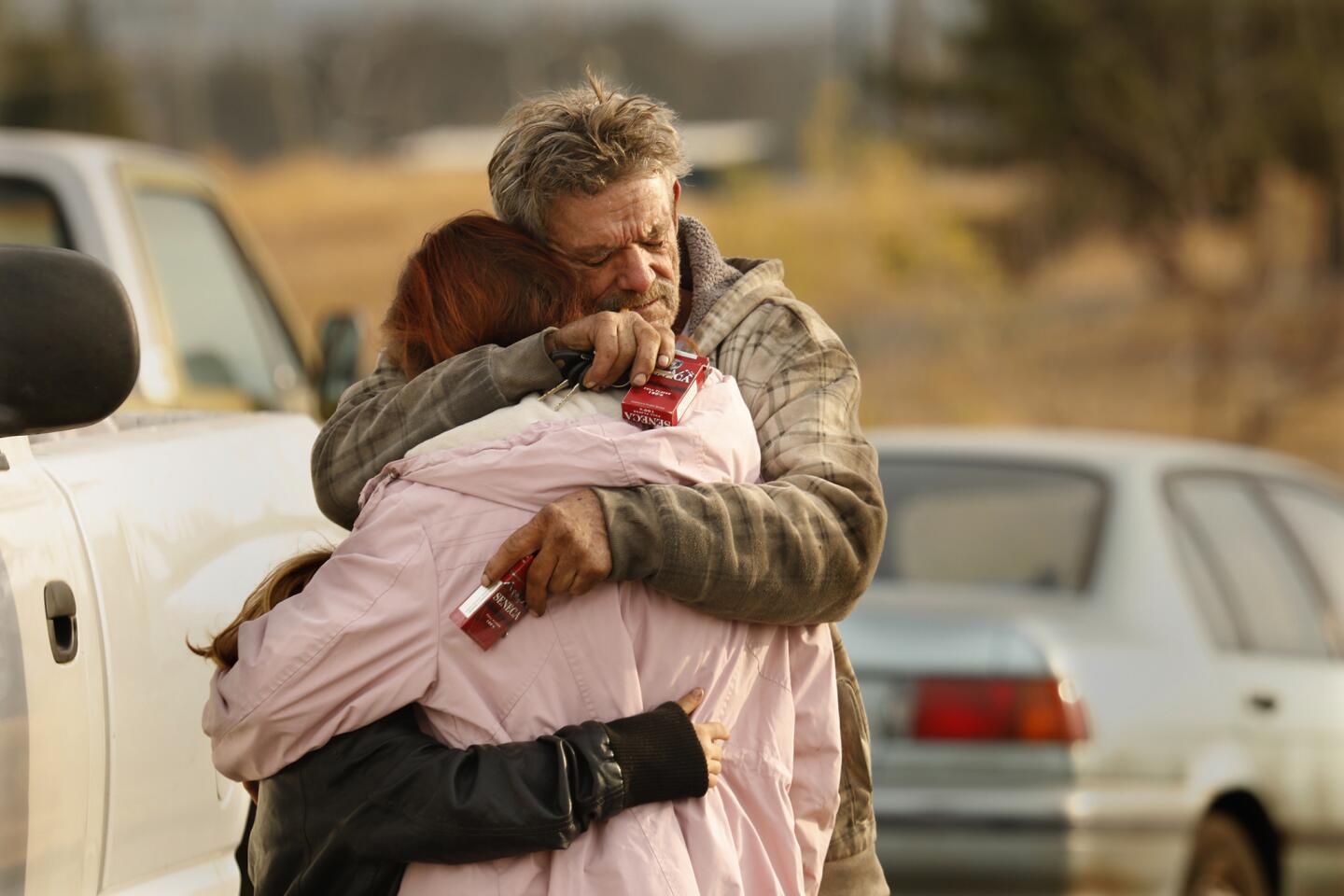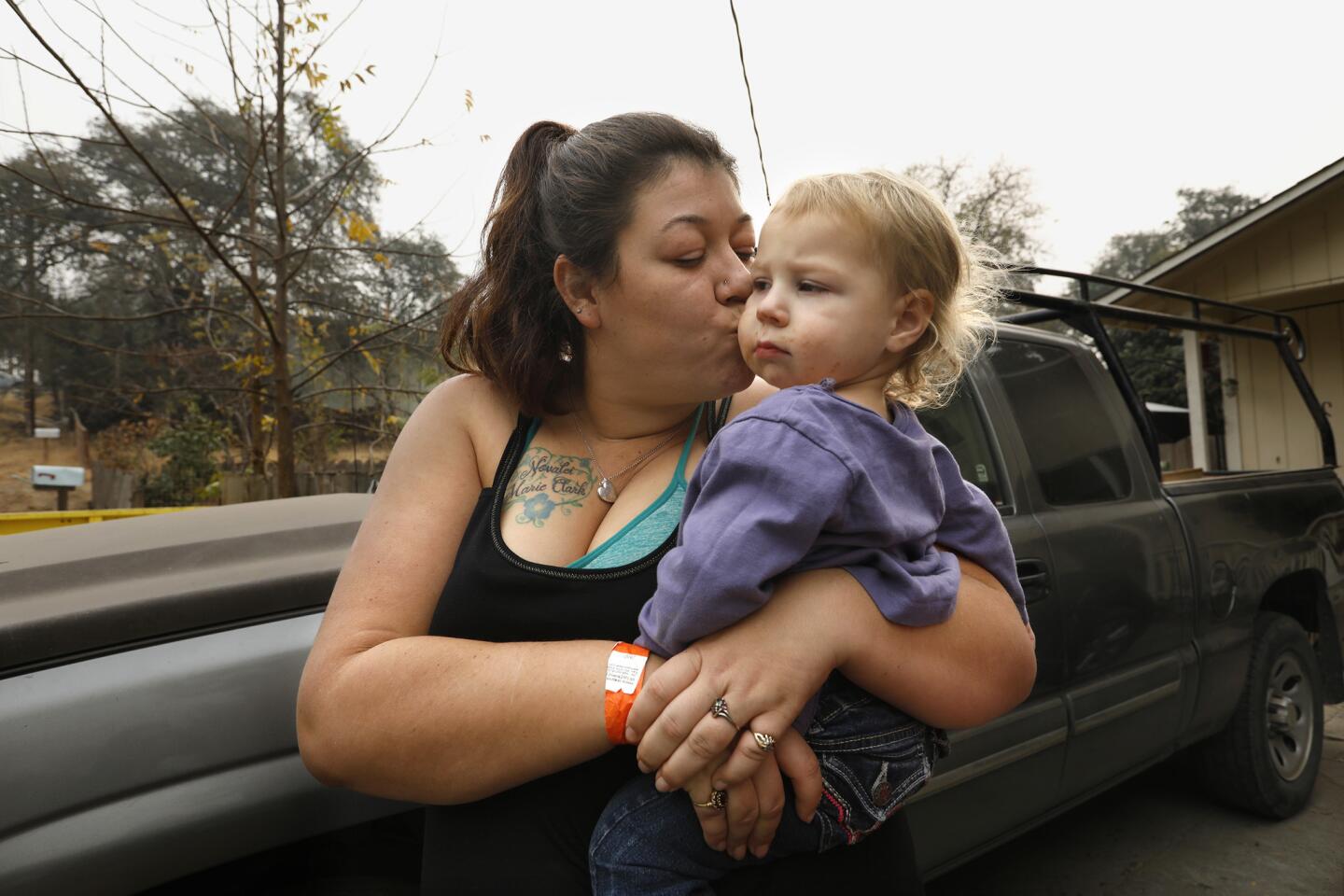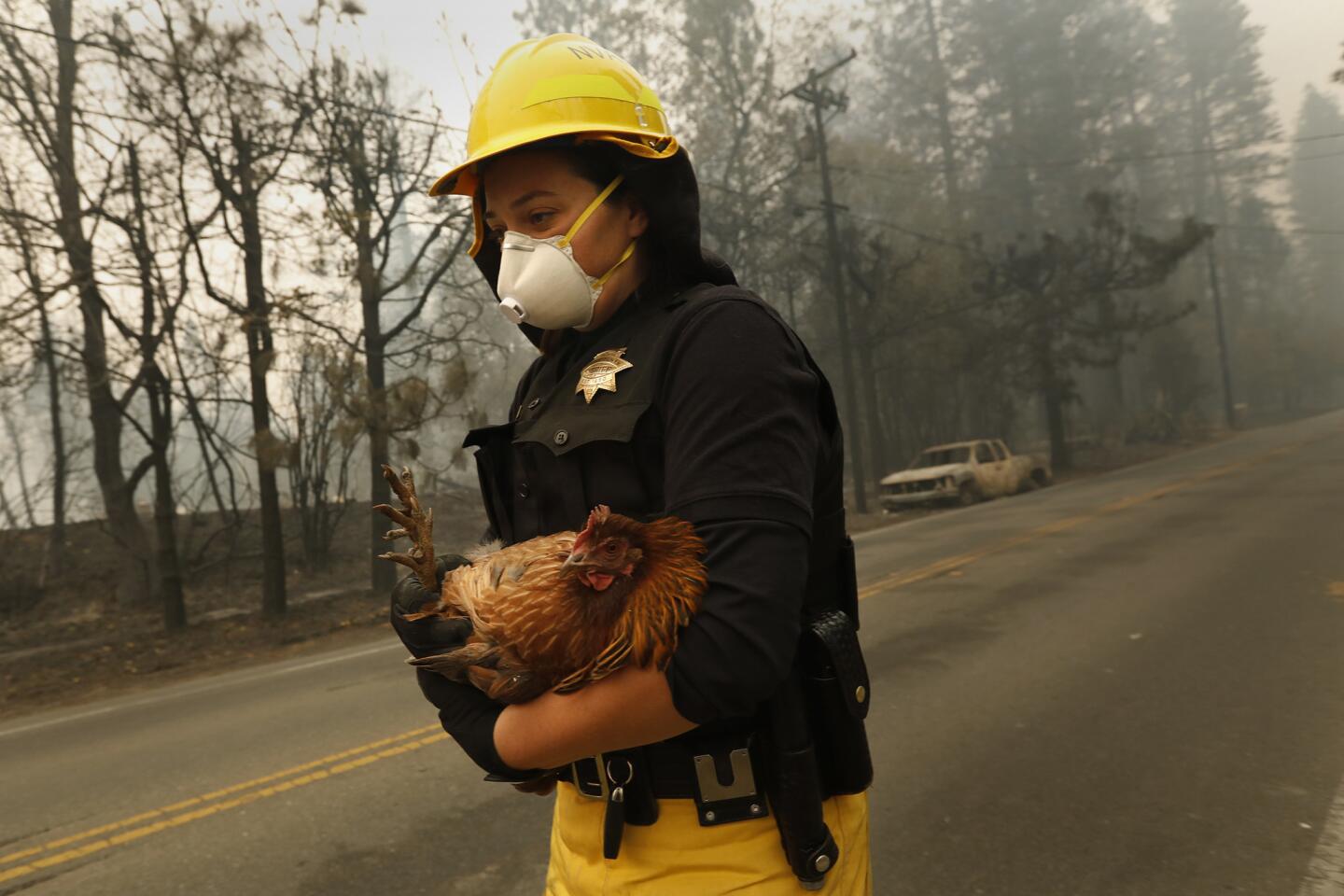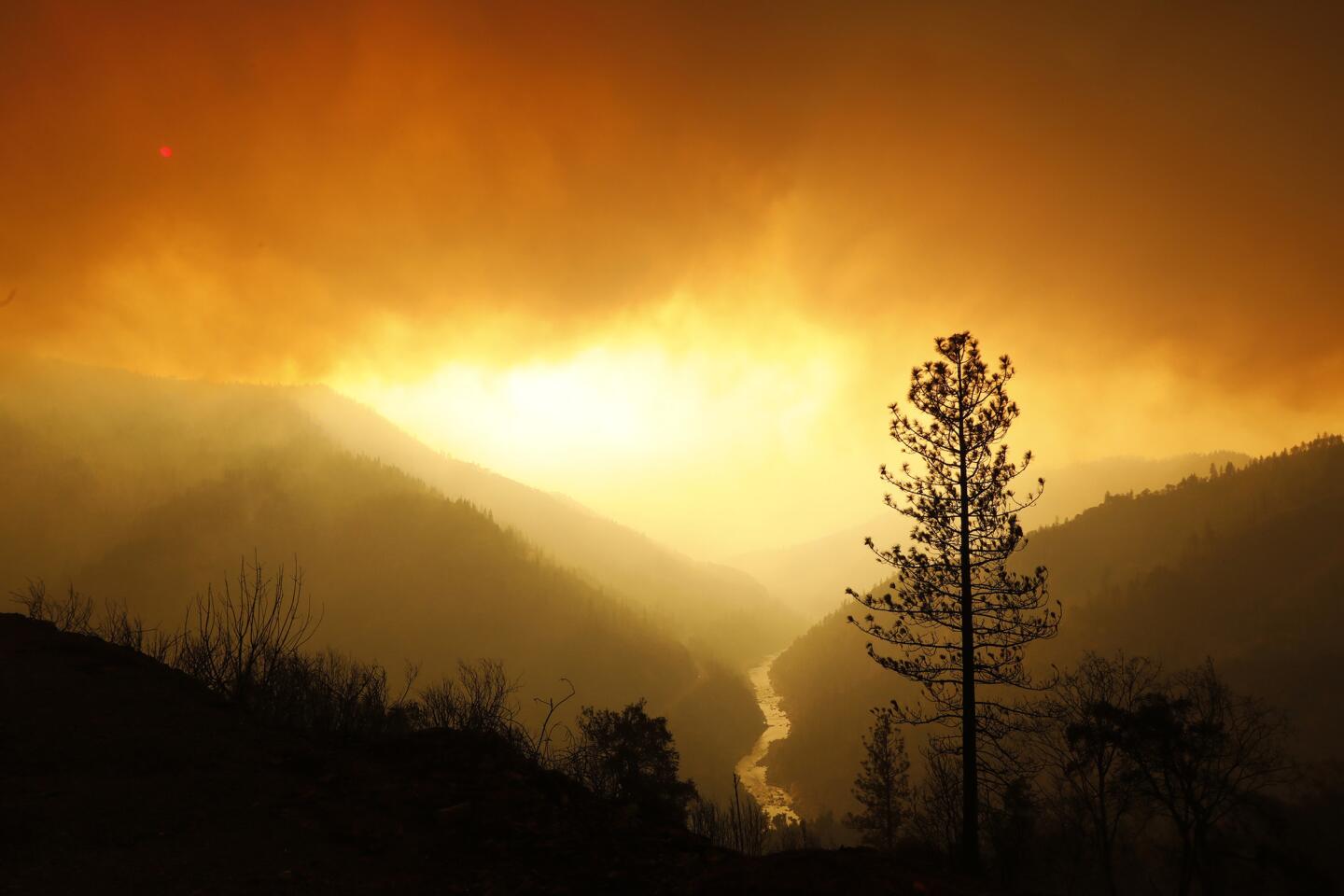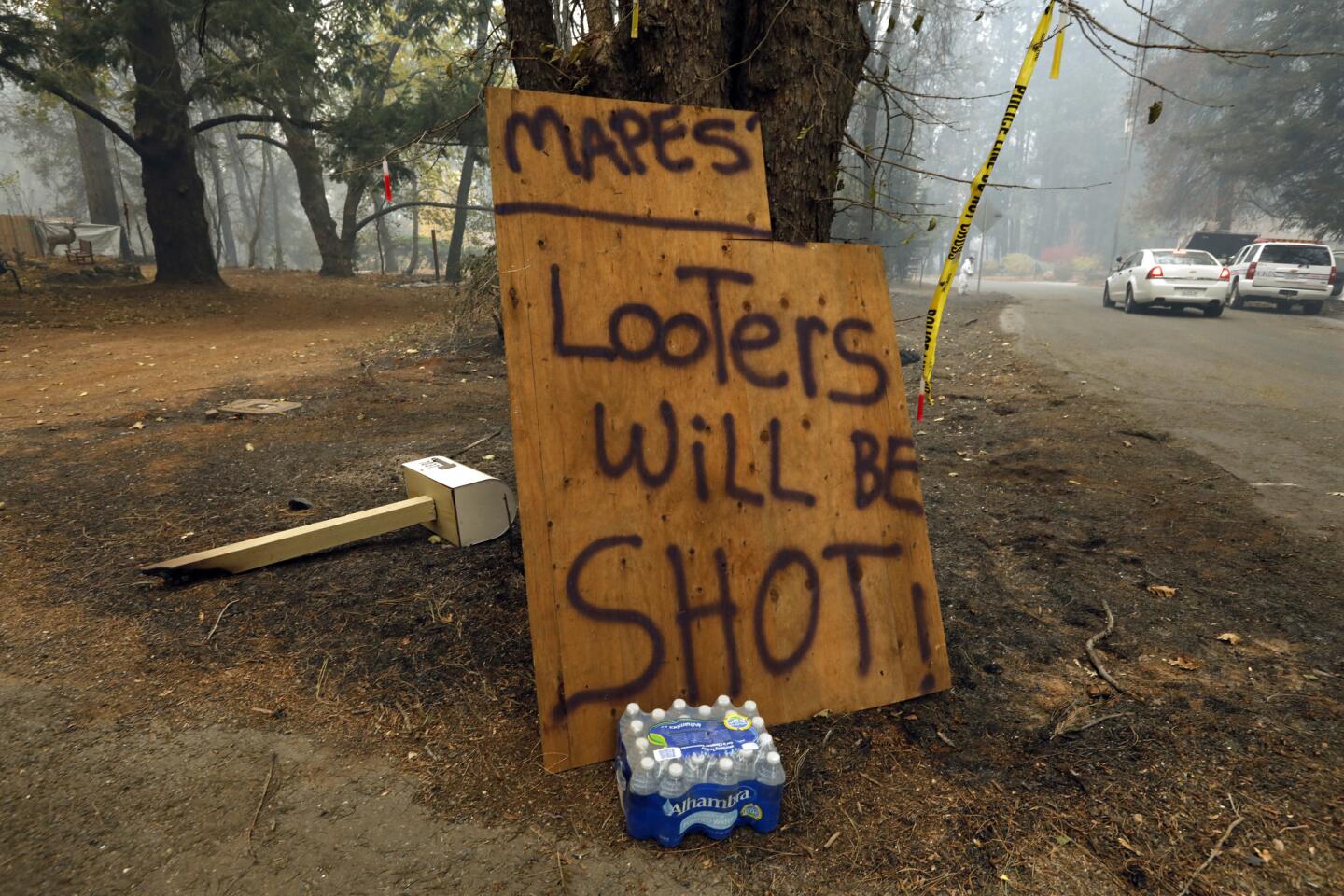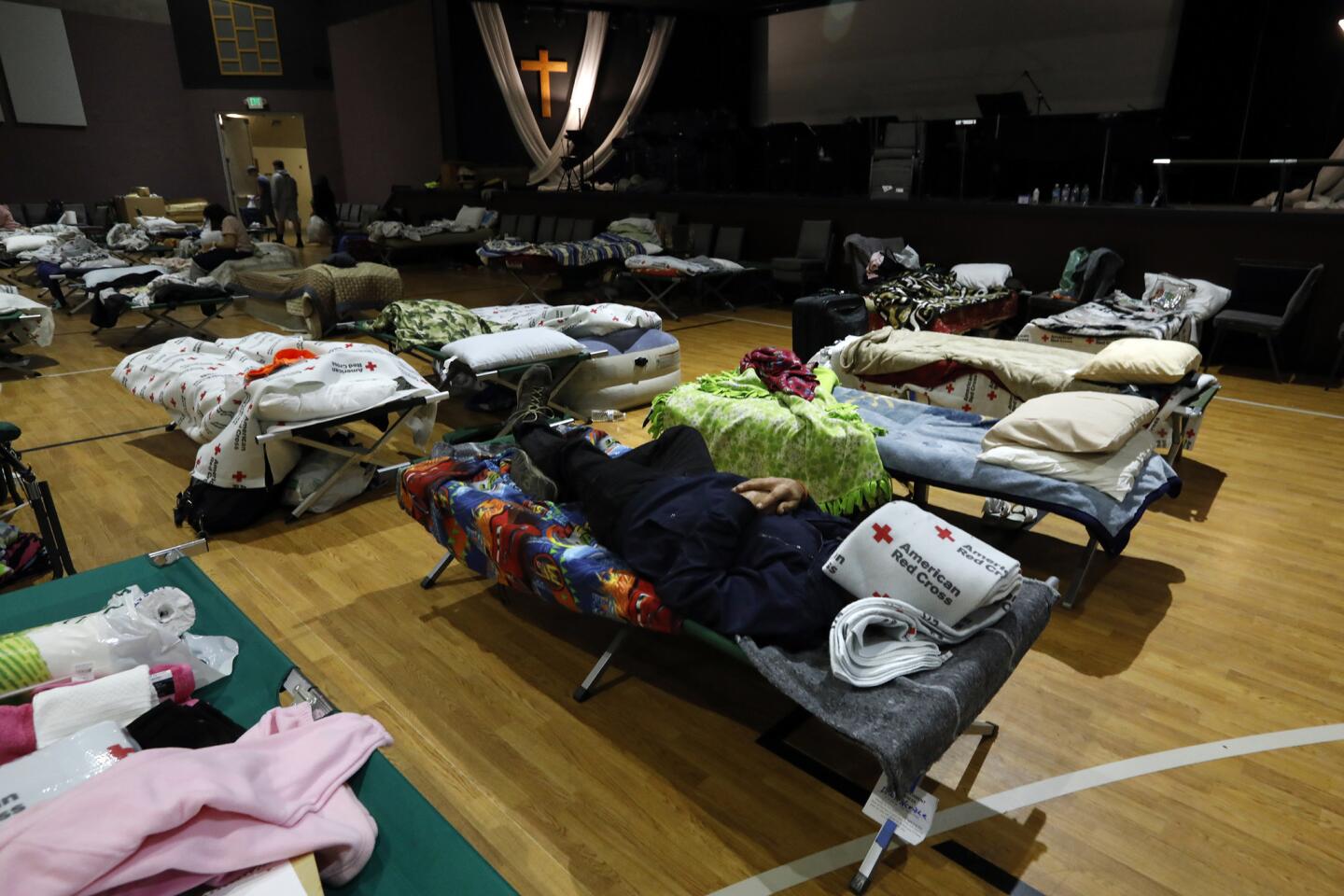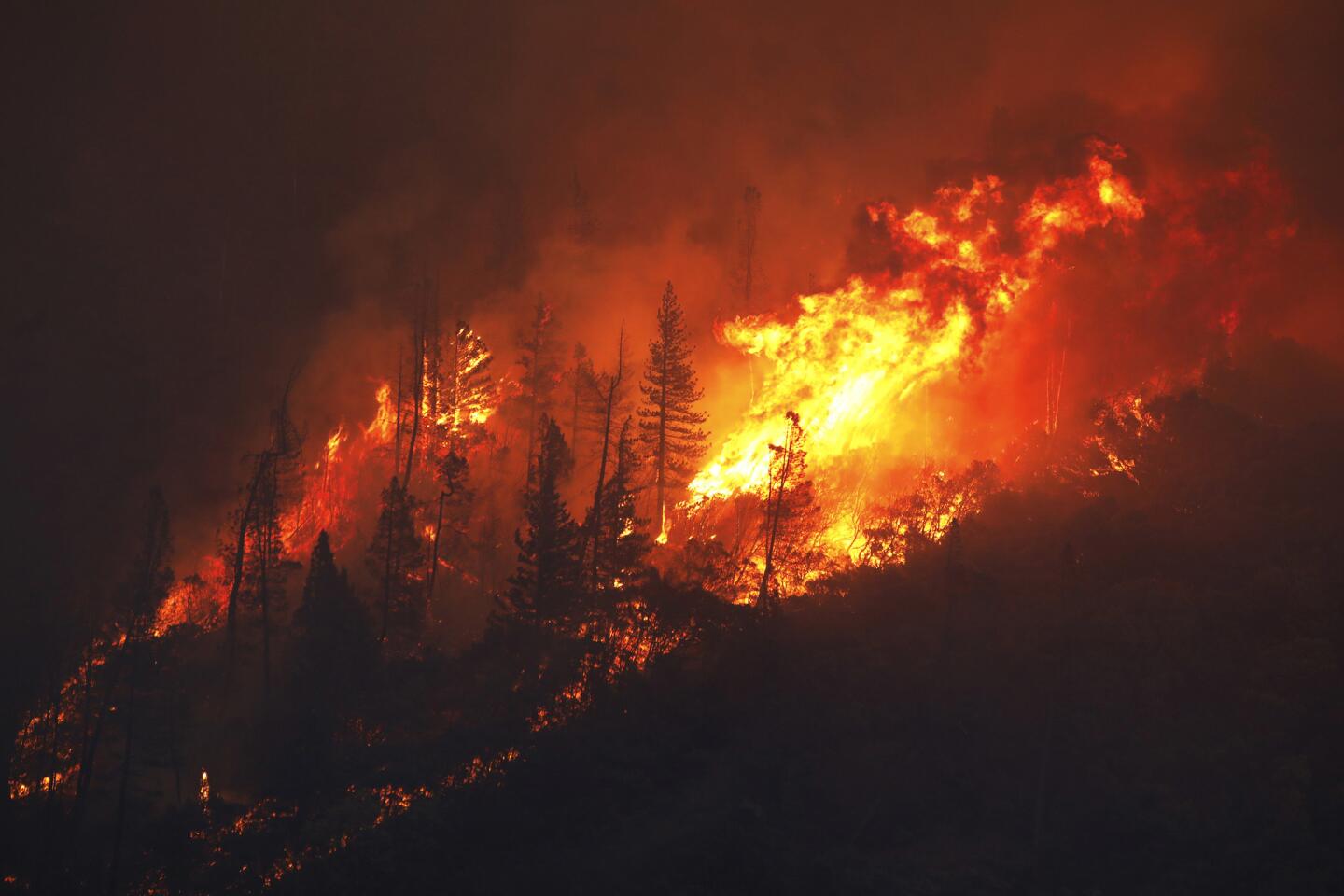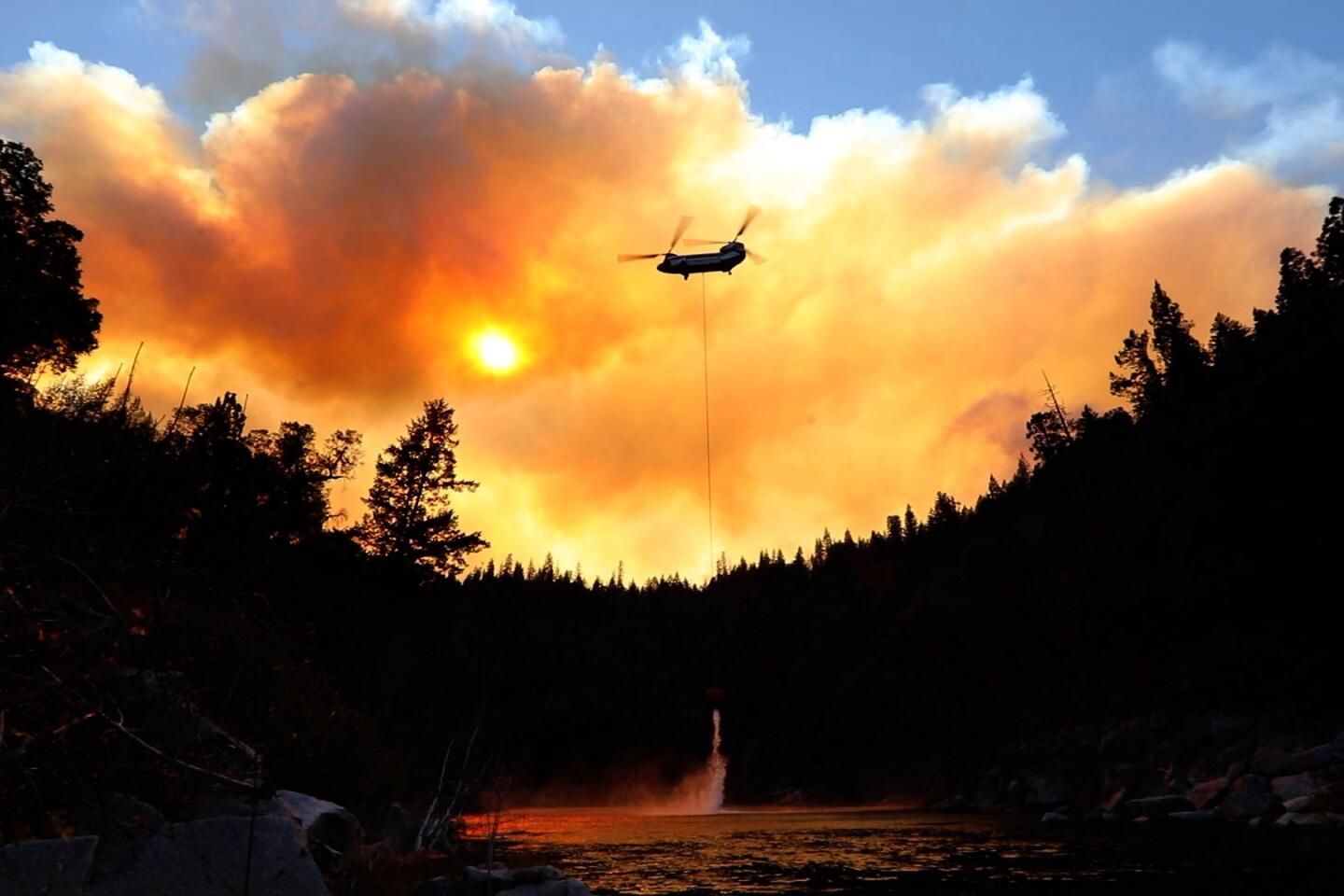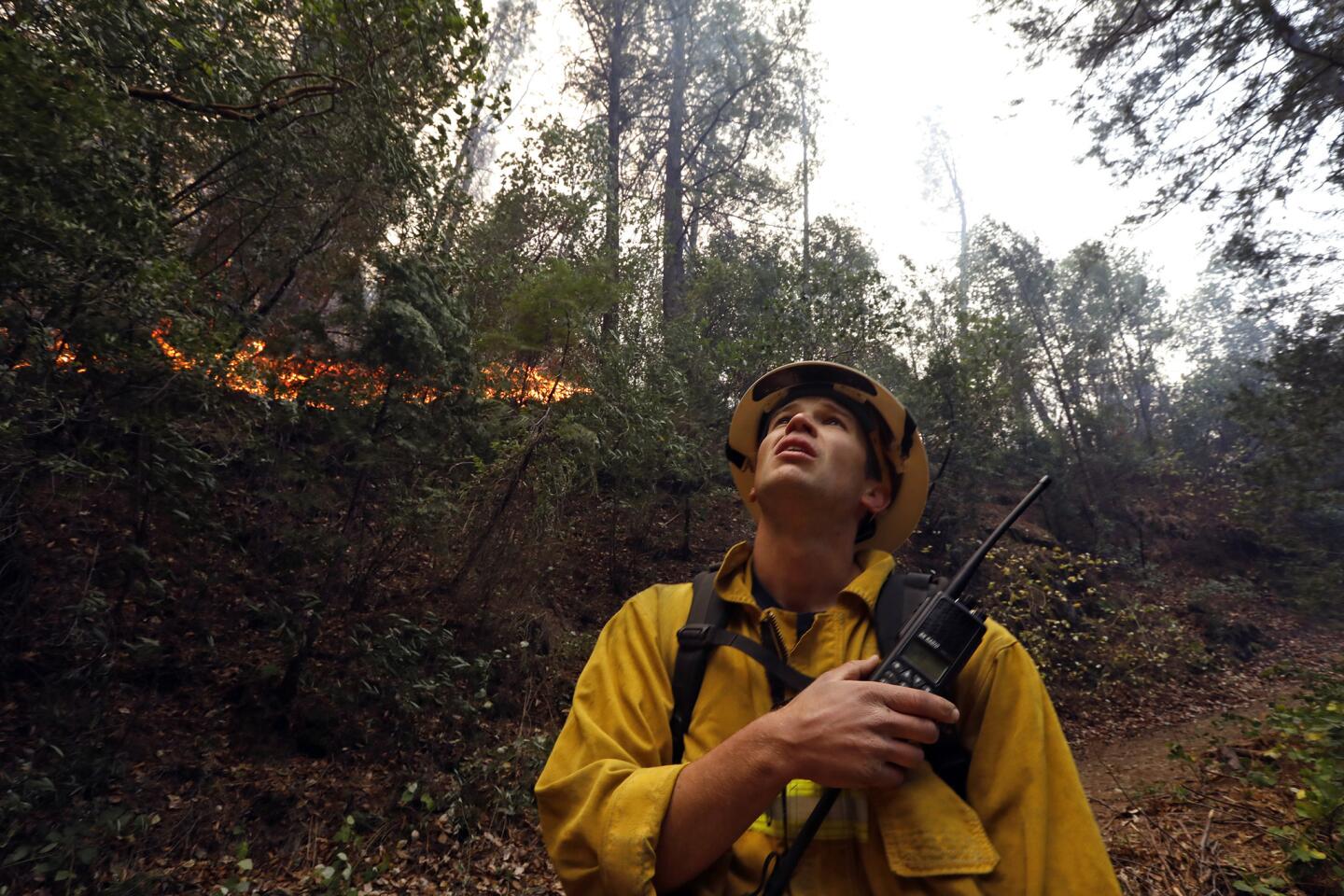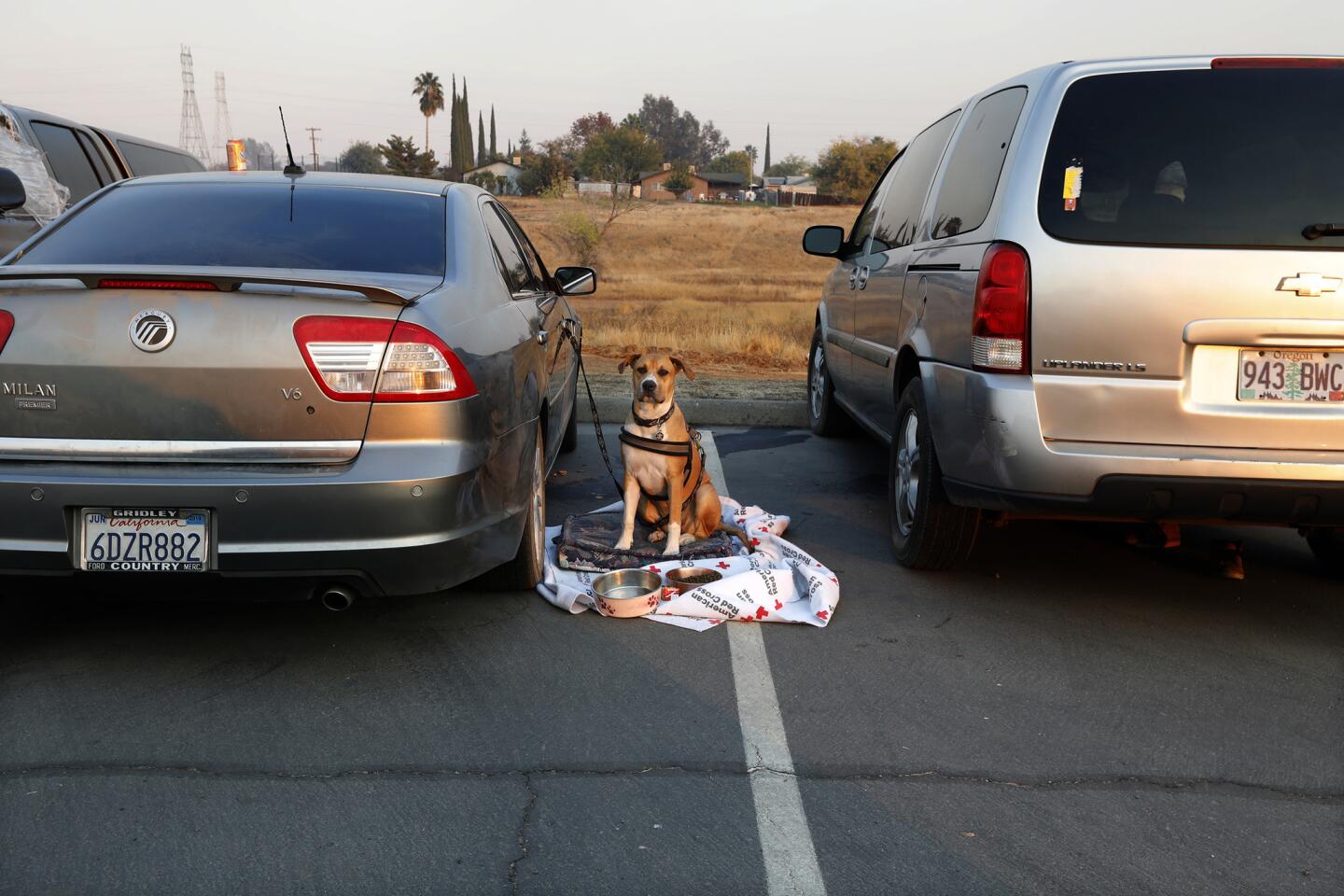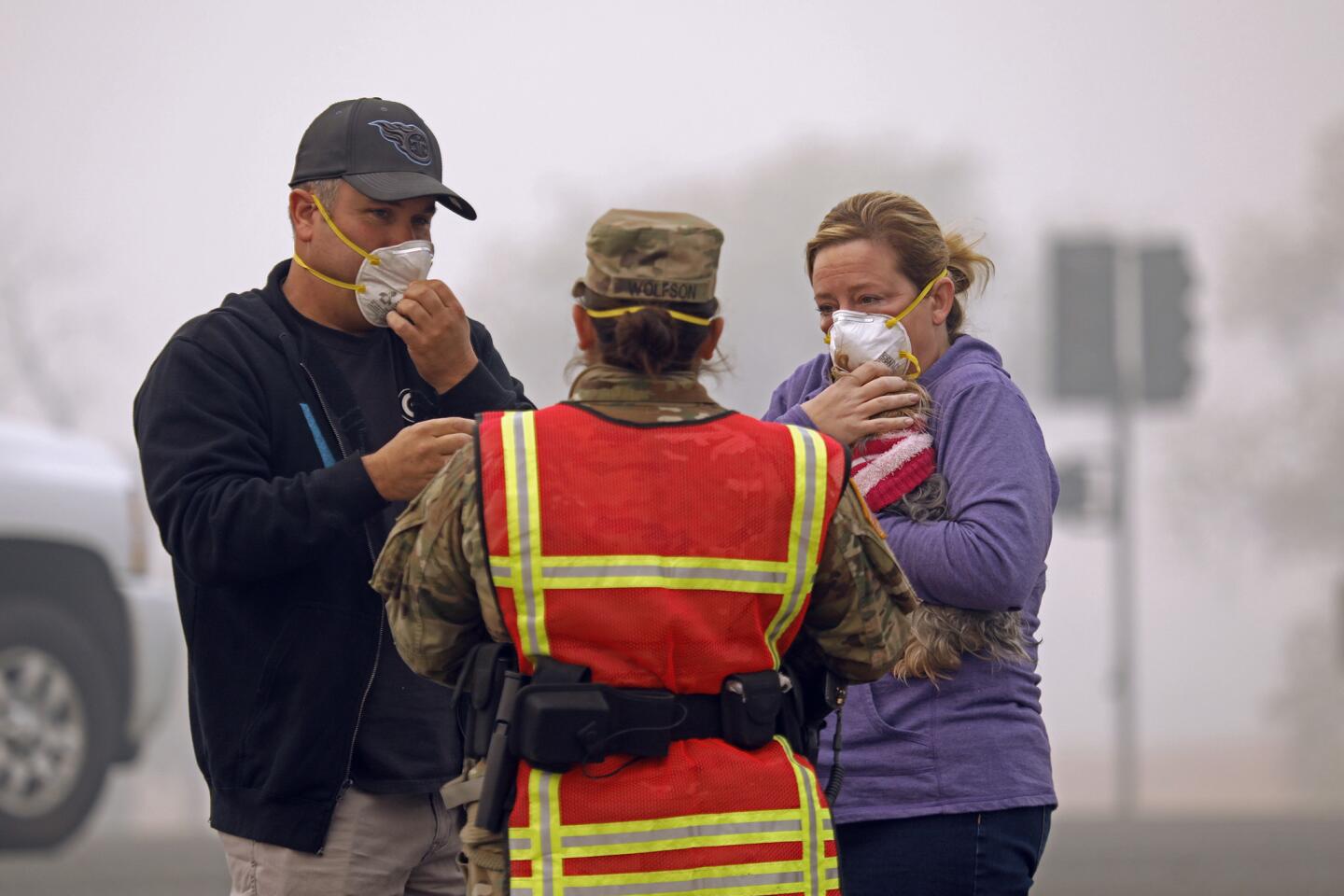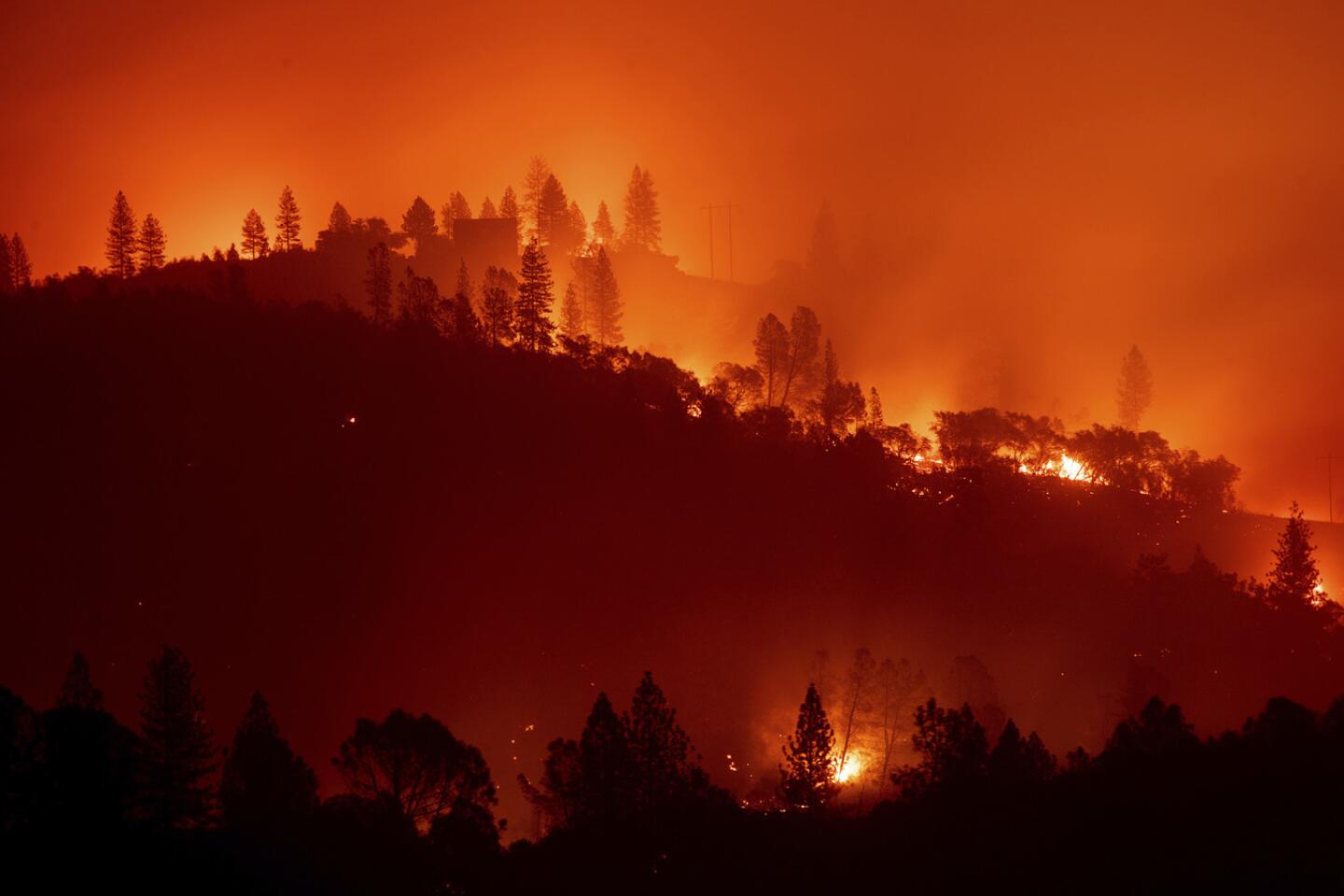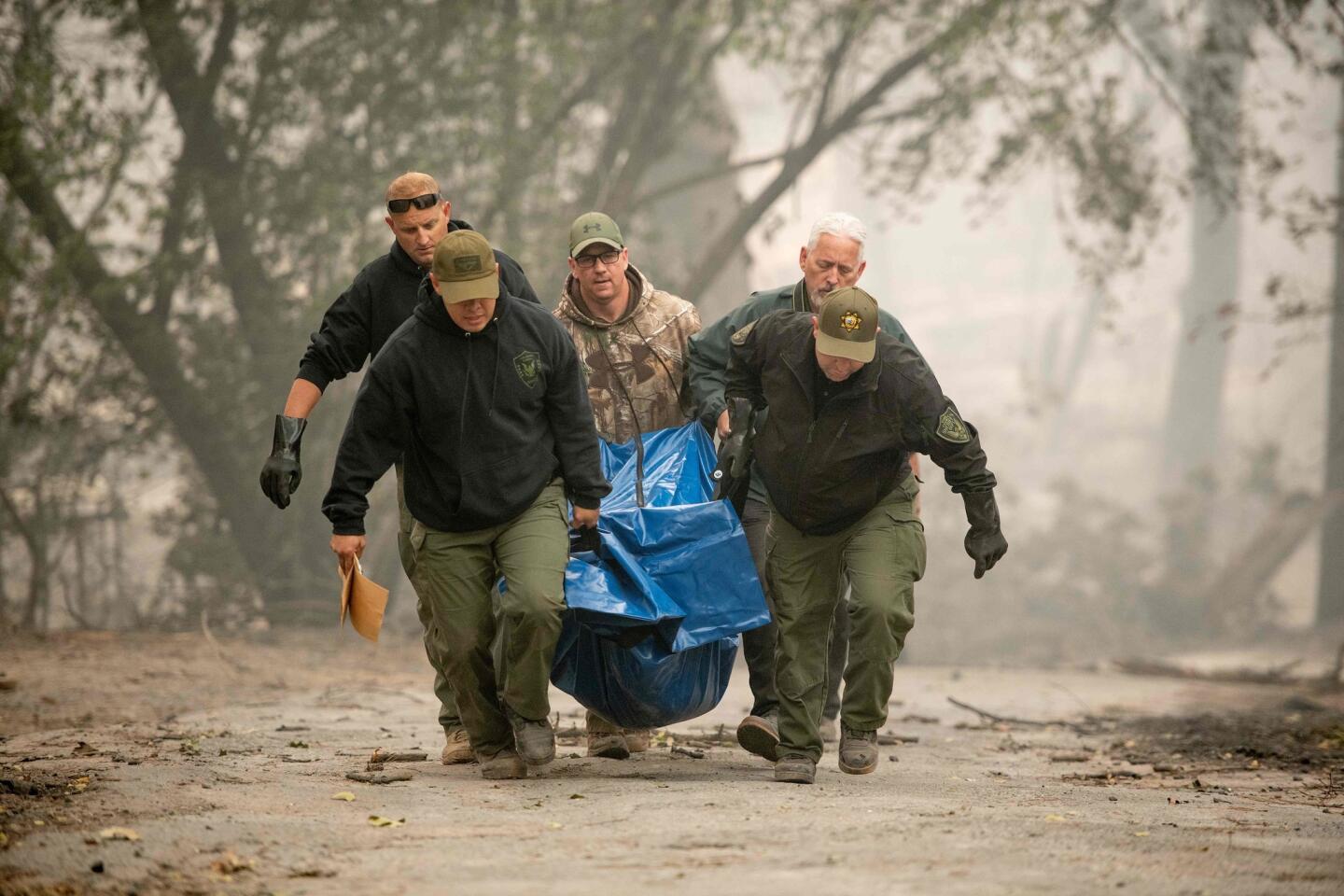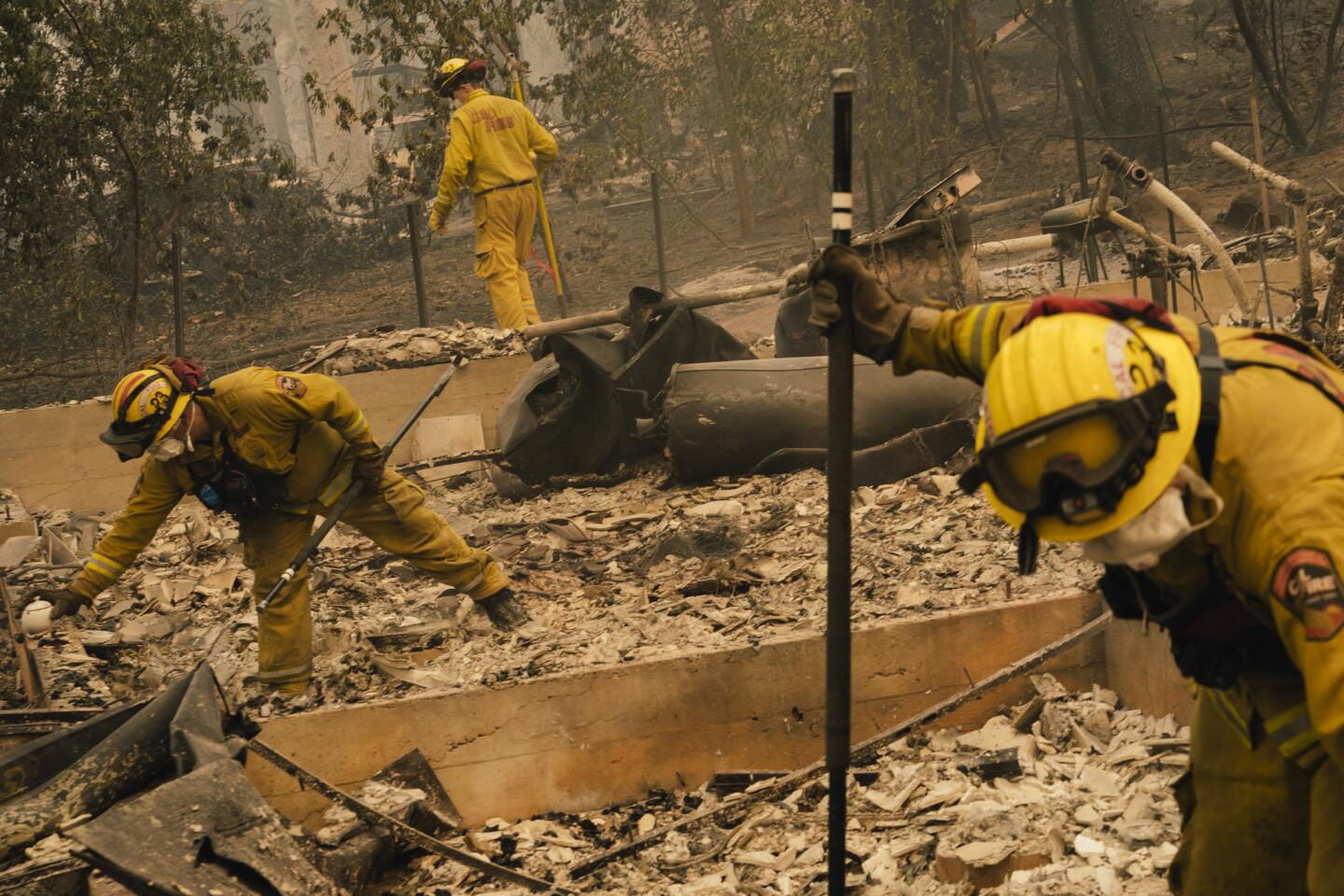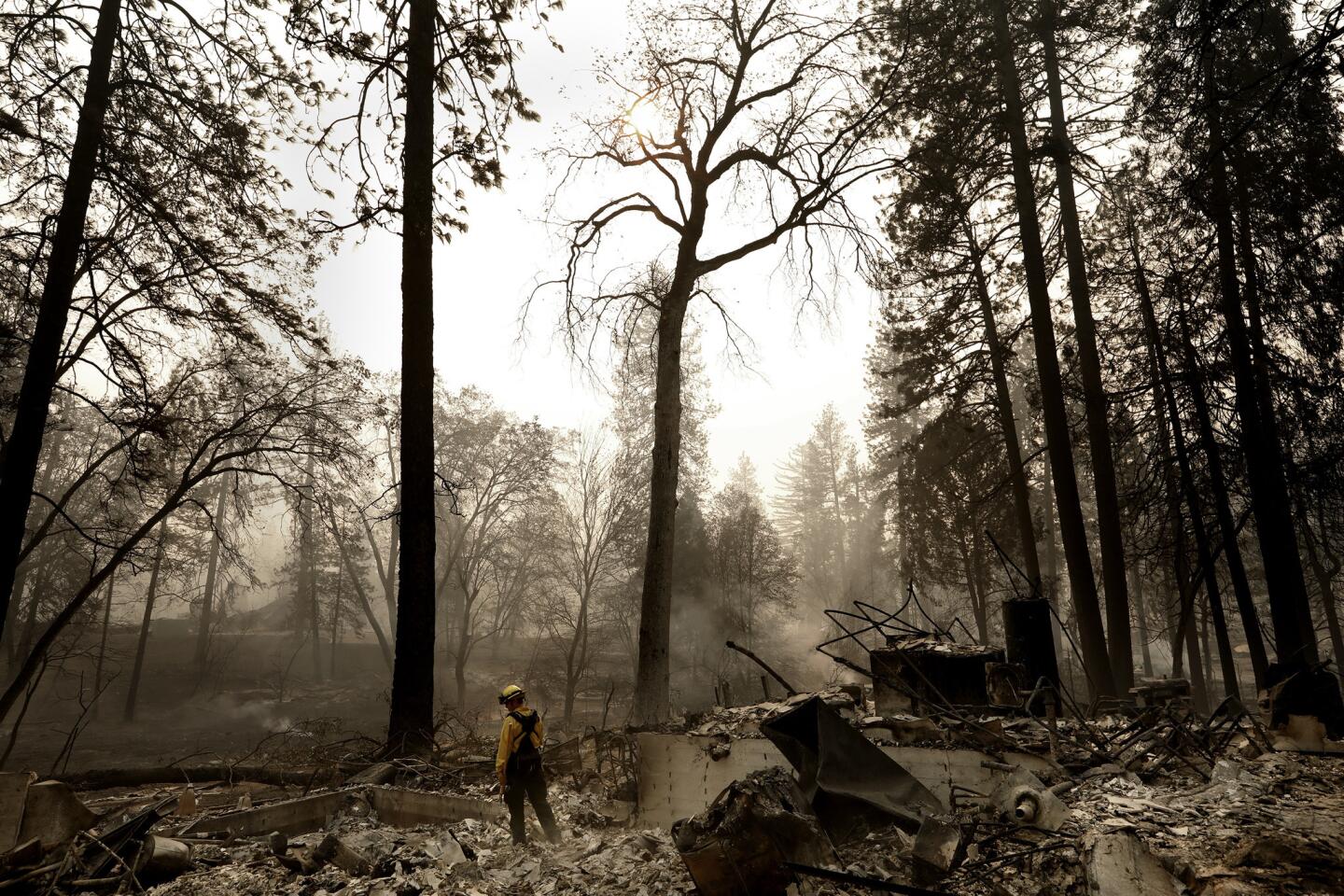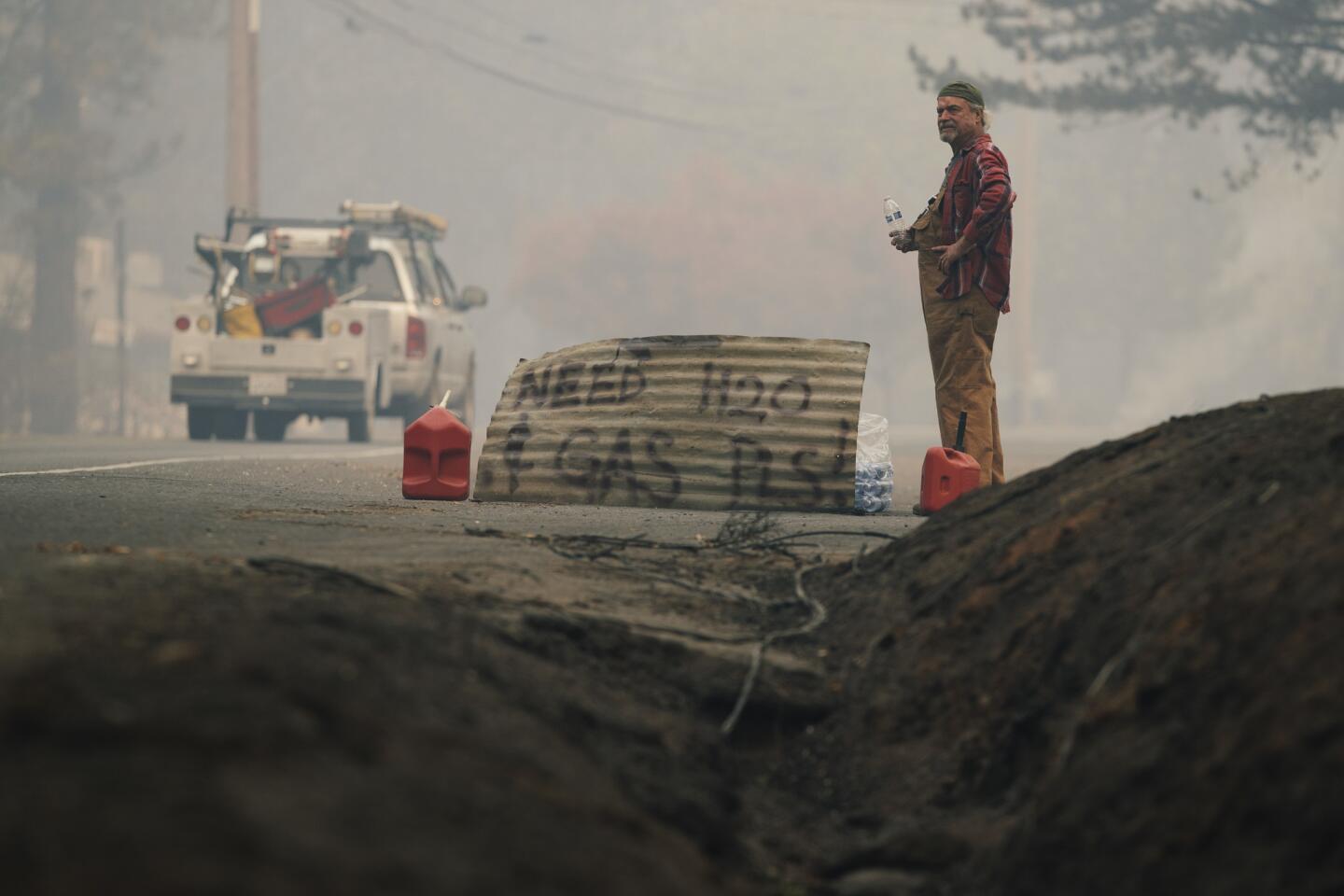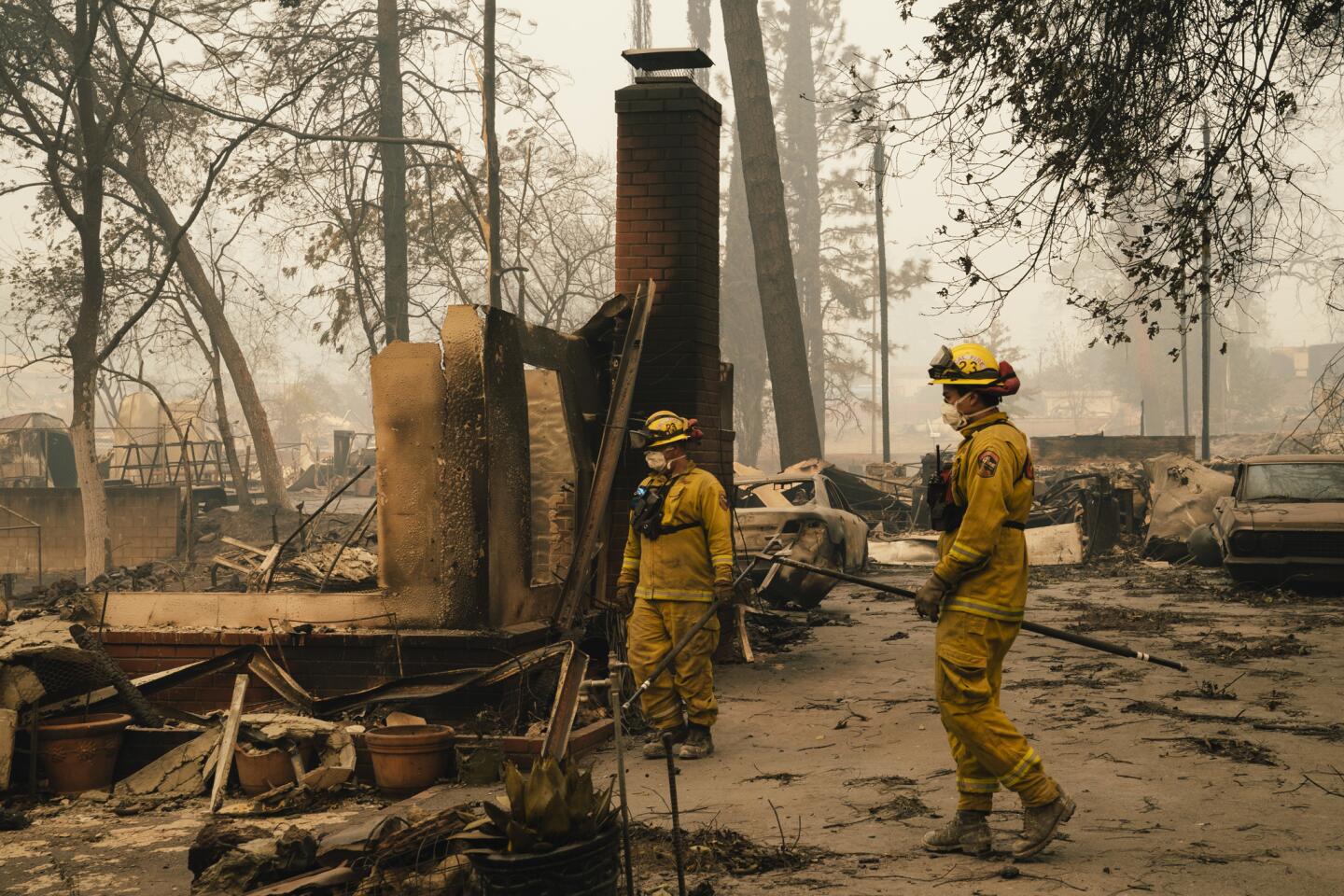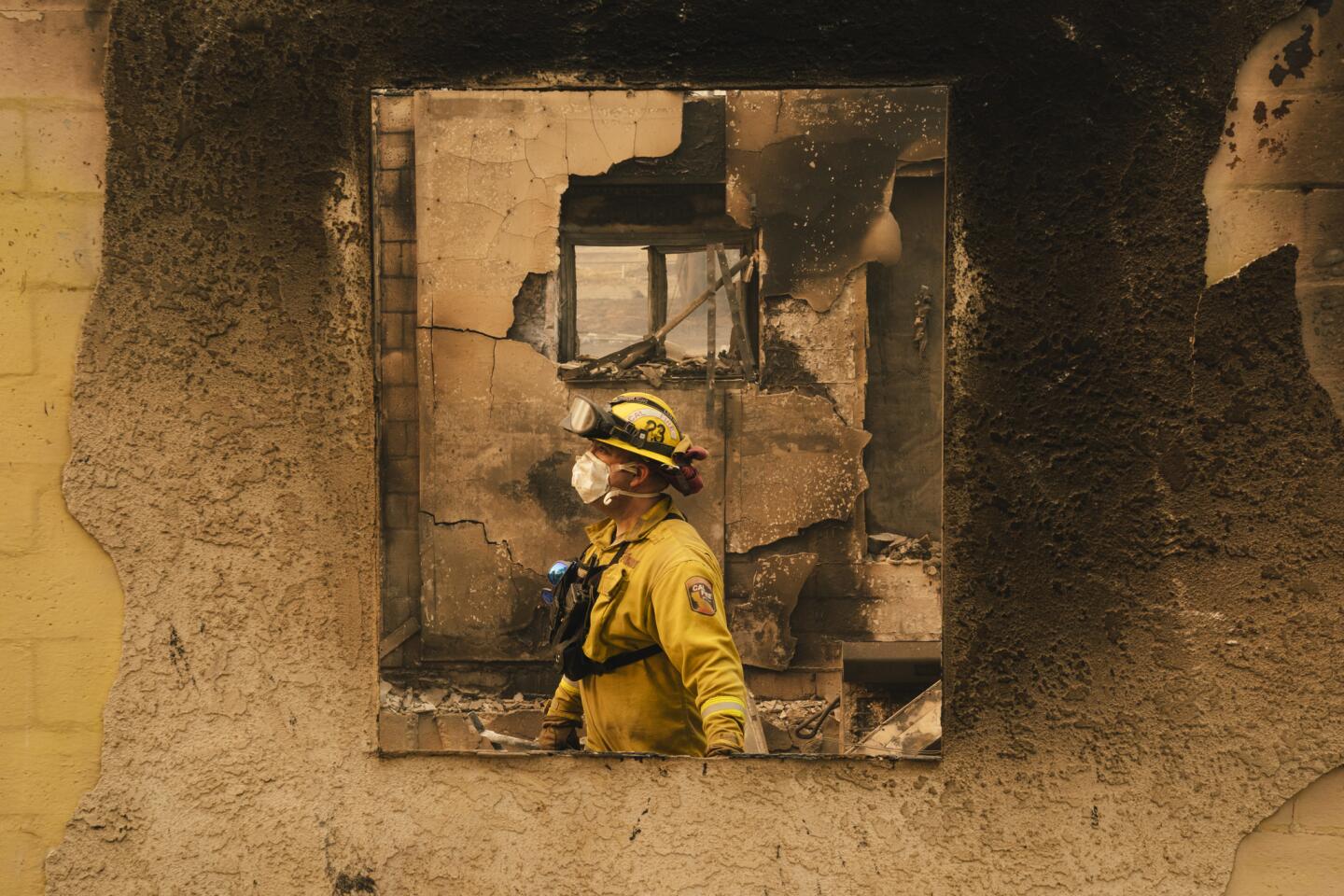California fire: Death toll in and around Paradise grows to 76 with 1,276 still missing as Trump visits
- Share via
Reporting from PARADISE, Calif. — The death toll from California’s worst fire on record rose to 76 as President Trump vowed Saturday to help California recover from the devastation and work to prevent catastrophic blazes.
The number of those still unaccounted for continued to rise, standing at 1,276 people as of Saturday night. But Butte County officials said the list is far from precise and could include duplicates as well as the names of people who have not checked in with loved ones or authorities.
The remains of five more people were found Saturday.
Trump toured the rubble of Paradise, where more than 12,000 structures were lost, with Gov. Jerry Brown and Gov.-elect Gavin Newsom.
Trump said he was stunned by the level of destruction.
“Hopefully, this will be the last of these, because it was a really, really bad one,” the president said. “People have to see this to really understand it.”
Though he and Brown have strong political differences, they struck a chord of unity. Trump praised the state’s first responders and said he had productive discussions with Brown and Newsom.
The president also avoided his recent criticism of California’s fire and forest management that spurred controversy last weekend, even suggesting there was common ground on how to proceed.
“We do have to do management, maintenance. We’ll be working also with environmental groups,” Trump said. “I think everybody’s seen the light.
“We’re all on the same page now. Everybody’s looking at that. It’s going to work out well,” he added.
Asked about whether his views on climate change had shifted, the president said no: “I have a strong opinion; I want great climate.”
Brown said the road ahead will be challenging.
“It’s a big, massive cleanup after a massive tragedy,” he said. “Somehow we will pull through it together.”
The governor also thanked Trump for “being here and putting the focus and the spotlight” on the tragedy.
Track key details of the California wildfires »
The president arrived in Southern California on Saturday afternoon for a similar tour of devastated areas around Malibu and Thousand Oaks. The Camp fire in Northern California and the Woolsey fire in the south combined have burned more than 250,000 acres and destroyed more than 10,000 structures.
Air Force One touched down at Naval Air Station Point Mugu in Ventura County shortly after 3 p.m. The president, who shook hands with greeters on the tarmac, was accompanied by Brown, Newsom, Rep. Kevin McCarthy (R-Bakersfield) and Brock Long, administrator for the Federal Emergency Management Agency.
The presidential motorcade left the Naval Air Station at 3:24 p.m. to tour areas impacted by the Woolsey fire, which after growing to more than 98,000 acres, burned 836 structures and killed three people.
Later, Trump addressed reporters who asked about his views on climate change and gun control in the wake of the Woolsey fire and the recent mass shooting in Thousand Oaks.
“We’ll be looking at everything,” he said. “It’s land management — it’s forest management. We’re going to get to the bottom of it.”
He did not address his views on gun control, but said he would be meeting with families who lost loved ones in the Thousand Oaks shooting, a “horrible event in a great area.” A gunman opened fire at a local bar on Nov. 7, killing 12 people before taking his own life.
When asked about whether his relationship is now improved with the California leaders he has so openly criticized, Trump said “I think we’ve developed a good relationship.”
He reached toward Newsom standing several feet away, patting his back and shaking his hand.
Trump was roundly criticized last week for erroneously blaming the fires on poor forest management and threatening to cut funding to California.
But in recent days, the president has offered more conciliatory comments about the wildfires, saying Tuesday, “We mourn for the lives lost and we pray for the victims of the California wildfires.”
In an interview on Fox News, Trump said climate change might have contributed to the fires but maintained that forest management policies must change.
“Maybe it contributes a little bit,” he said of climate change. “The big problem we have is management.... You need forest management, it has to be, I’m not saying that in a negative way…. I’m just saying the facts, and I’ve really learned a lot.”
Rep. Doug LaMalfa (R-Richvale), who was traveling with the president Saturday, briefed reporters shortly before Air Force One landed in California about the significance of forest management, according to a White House pool report.
“The president wants to get something done on this,” LaMalfa said. “We need to be a lot more aggressive.”
LaMalfa dismissed criticism of the president’s earlier tweet on forest management as having more to do with its timing and politics than the substance of the argument. He said that forest management does not mean clear-cutting but rather thinning and creating buffers around populated areas.
“Without forest management, things can go wrong,” he said.
Trump continued to talk about forest management Saturday. “We’ve got to take care of the floors, you know the floors of the forest. It’s very important,” the president said.
He also alluded to Finland, saying that country focuses “on raking and cleaning. They don’t have any problem and when it is … I know everyone is looking at that.”
The reference to Finland puzzled some, because its ecosystem is so different from California’s.
“We will do whatever is necessary [to help California], 100%,” Trump said. “We’ll get it taken care of.”
Trump’s visit was already drawing a backlash from some Southern California residents.
As the Woolsey fire raged in Malibu, Carrie Armstrong, 57, of Topanga Canyon said Trump’s tweet on forest management and funding was highly insensitive.
“He’s still the president,” she said. “He shouldn’t speak so badly about people [in crisis]. He hates California.”
Armstrong said she spent six days holed up in her niece’s Van Nuys apartment with her cat and dog. She returned, grateful to be alive, with her home still standing. The worry has turned to anger as she thinks about Trump visiting her home state.
“He’s only visiting because he got so much flak and negative feedback” from his tweet, she said.
Ryan Victor, 47, was among the thousands of area residents forced to flee their homes when the fire began nine days ago. On Saturday, Victor and many others found themselves trying to return to their usual routines.
First on his list: Pick up the pile of mail that had accumulated since he evacuated from his Topanga home.
As he went about his errands, he said that he had become numb to Trump’s rhetoric but that this was different.
“The idiotic things that come out of his mouth doesn’t register much anymore,” he said. “But I’m outraged over the hypocrisy.”
He noted the president’s accusatory tweet, followed by what now seems like a show of support and compassion by visiting.
“With him, as long as he signs the check” to help with the recovery “and doesn’t withhold federal funds for forest management, that’s all that matters,” Victor said. Everything else is just “a lot of noise.”
On Saturday afternoon, a long line formed outside a Los Angeles County courthouse in Malibu that was converted into a Woolsey fire disaster center before the doors were set to open at 1 p.m. Dozens of federal, state and local agencies set up tables inside to help residents get the help they need.
Carol Bretonne, 78, stood behind more than a dozen people to find out what services would be offered to help her rebuild her Malibu home. It was the second time she lost everything. A 1978 blaze destroyed her house. A year later she started construction on a new one, which was charred by the Woolsey fire.
Now, she wondered if she could shoulder the high cost of debris removal, which her insurance doesn’t cover.
“We lost our neighborhood,” she said. A week later, Bretonne also lost her mother to old age. The double tragedies left her unconcerned about Trump’s visit.
“What is he going to do?” she asked. “He doesn’t do anything. He did finally claim a disaster area so we can get FEMA.”
Steven Cordrey, 52, stood nearby. Cordrey lost his house in the 1994 Malibu fires but said this time was worse because he has not been able to get any information about his house.
“It’s 2018!” he said, his voice shaking with emotion. “This is a travesty. We have not been allowed in [his neighborhood] for nine days. We’re treated like criminals when I go to checkpoints to ask.”
He believes he spotted rubble where his home once stood when Caitlyn Jenner posted a video from her hilltop home that panned across the neighborhood.
“That’s how all of us found out,” he said. “Nine homes. Nine neighbors. That’s not OK that’s how we found out there’s no neighborhood and nobody’s there.”
Despite the tremendous devastation in the Malibu hills, Cordrey said Saturday that some things remain the same as he spotted surfers catching waves, trees tinged with fall swaying in the wind, and the sun reflecting off the rippling ocean.
“It’s very surreal,” he said. “Because where we’re at, there is nothing.”
In Butte County, the Camp fire, already the state’s worst fire on record, has burned 146,000 acres and destroyed 12,263 structures, officials said, adding that it could take weeks to complete the search for victims and identify them. Thousands of residents are without homes and living in shelters and tent cities.
The Woolsey fire in Southern California has burned more than 500 structures and killed three people.
Trump’s visit was just his second as president to the nation’s most populous state. His first California visit, which he made in March to inspect border wall prototypes outside San Diego and to attend a fundraiser in the Beverly Park home of Edward Glazer, the co-chairman of the Tampa Bay Buccaneers NFL team, came later in his term than any White House occupant since Franklin D. Roosevelt.
Trump has had a particularly combative relationship with California, over environmental, immigration and other policies. The state’s Democratic leaders, including Brown, House Minority Leader Nancy Pelosi of San Francisco, and Reps. Adam B. Schiff of Burbank and Maxine Waters of Los Angeles, have been frequent Trump targets and, to varying extents, the faces of the resistance to him.
Last weekend, he wrote: “There is no reason for these massive, deadly and costly forest fires in California except that forest management is so poor. Billions of dollars are given each year, with so many lives lost, all because of gross mismanagement of the forests. Remedy now, or no more Fed payments!”
Experts called the tweet uninformed. Many politicians and residents called it insensitive.
“This is not a time for partisanship,” Newsom responded at the time. “This is a time for coordinating relief and response and lifting those in need up.”
The president of California Professional Firefighters, Brian Rice, called the tweet “ill-informed, ill-timed and demeaning to those who are suffering as well as the men and women on the front lines.”
“At this moment, thousands of our brother and sister firefighters are putting their lives on the line to protect the lives and property of thousands,” Rice added. “Some of them are doing so even as their own homes lay in ruins. In my view, this shameful attack on California is an attack on all our courageous men and women on the front lines.”
Times staff writers Nicole Santa Cruz in Paradise and Noah Bierman in Washington contributed to this report.
UPDATES:
6:20 p.m.: This article was updated with new figures for deaths and missing people.
5:05 p.m.: This article was updated with new information about Trump’s visit to Southern California.
3:30 p.m.: This article was updated with more comments from Trump.
3:15 p.m.: This article was updated with new comments from Malibu residents.
2:05 p.m.: This article was updated with comments from Southern California residents.
1:15 p.m.: This article was updated with later comments from the president.
1 p.m.: This article was updated with additional comments from Trump.
12:30 p.m.: This article was updated with later comments from Trump.
11:30 a.m.: This article was updated with additional details on Trump’s visit.
10:15 a.m.: This article was updated with information about Trump’s arrival in Northern California.
9:20 a.m.: This article was updated with more comments from Trump.
8:30 a.m.: This article was updated with new comments from President Trump.
This article was originally posted at 7:45 a.m.
More to Read
Sign up for Essential California
The most important California stories and recommendations in your inbox every morning.
You may occasionally receive promotional content from the Los Angeles Times.
